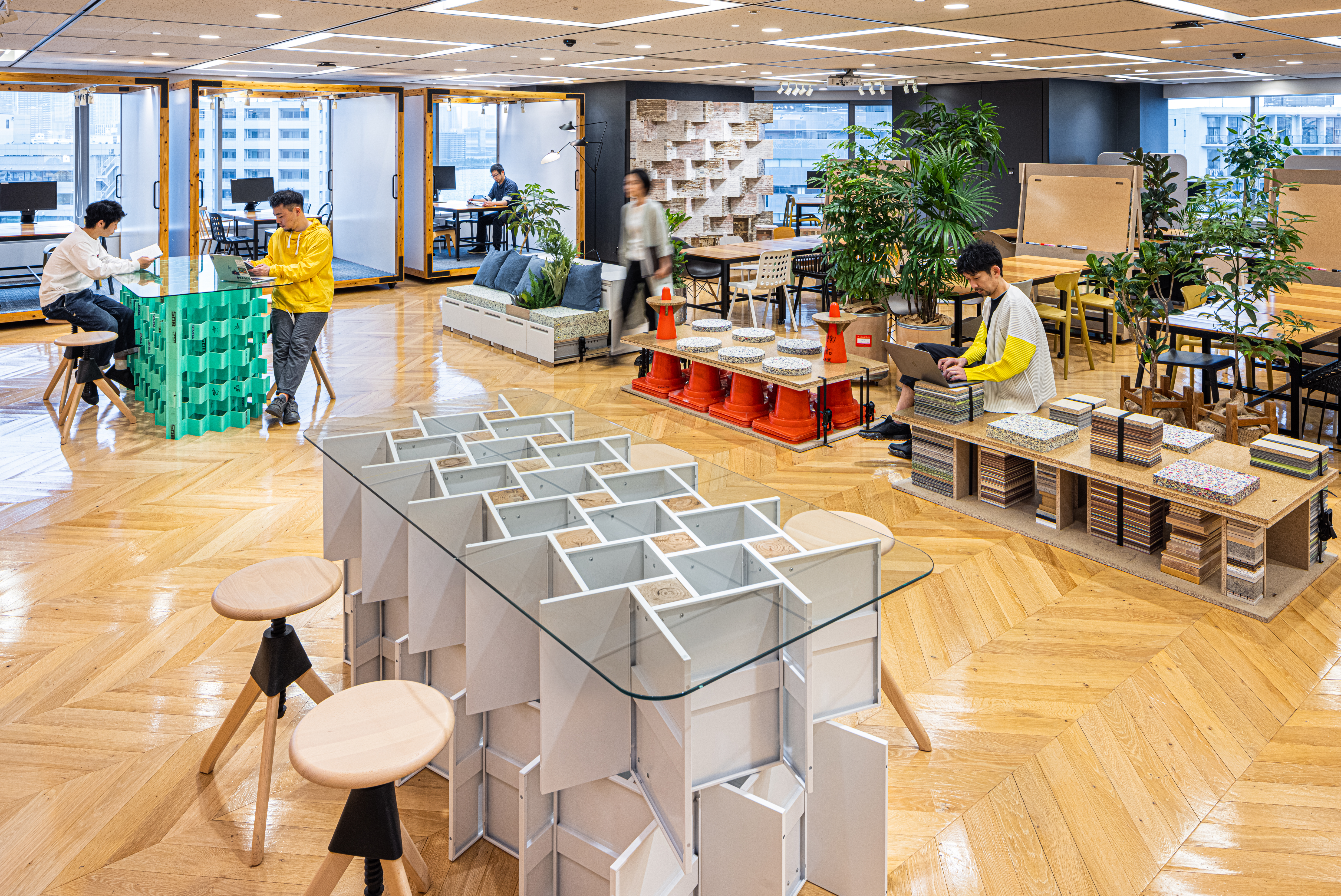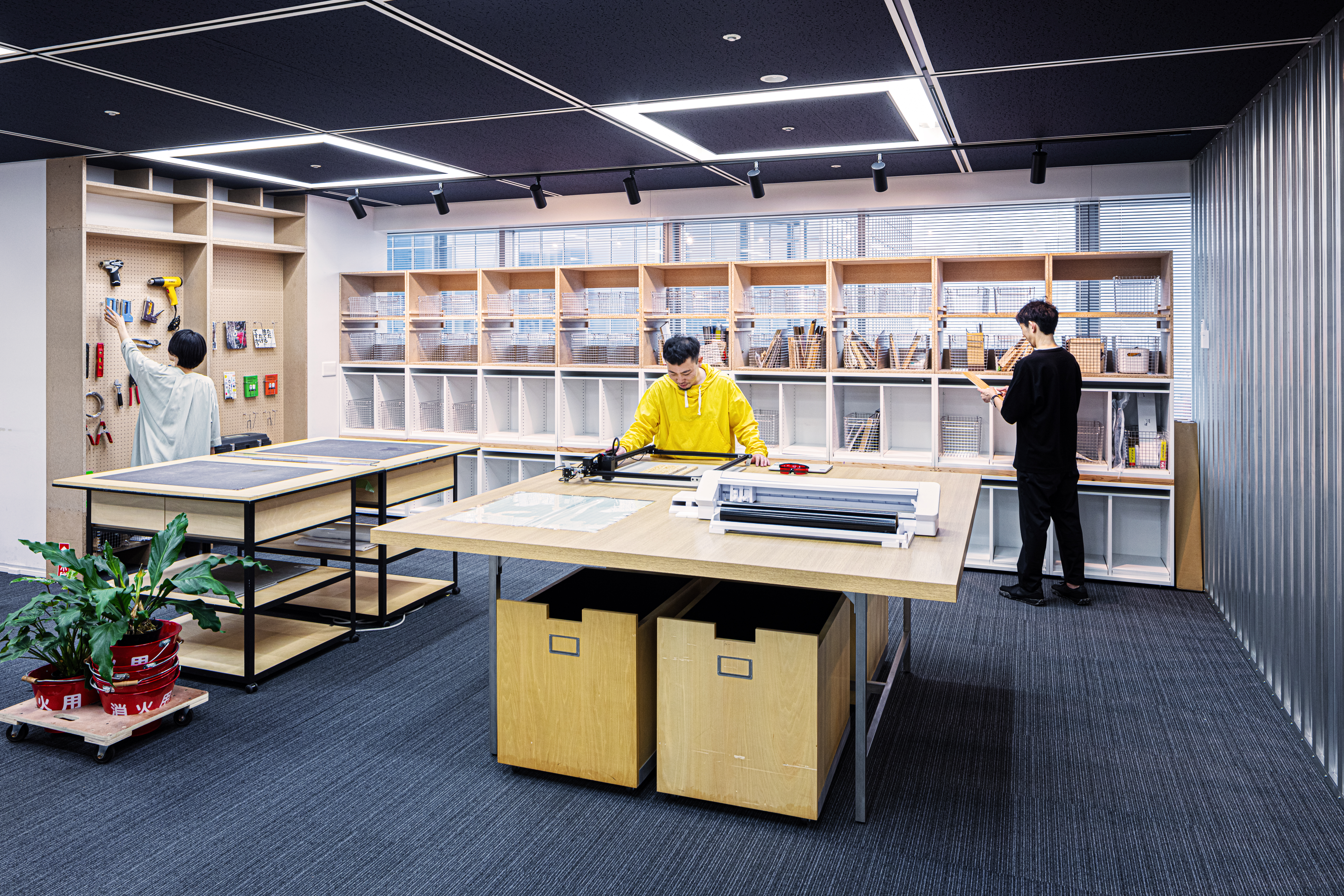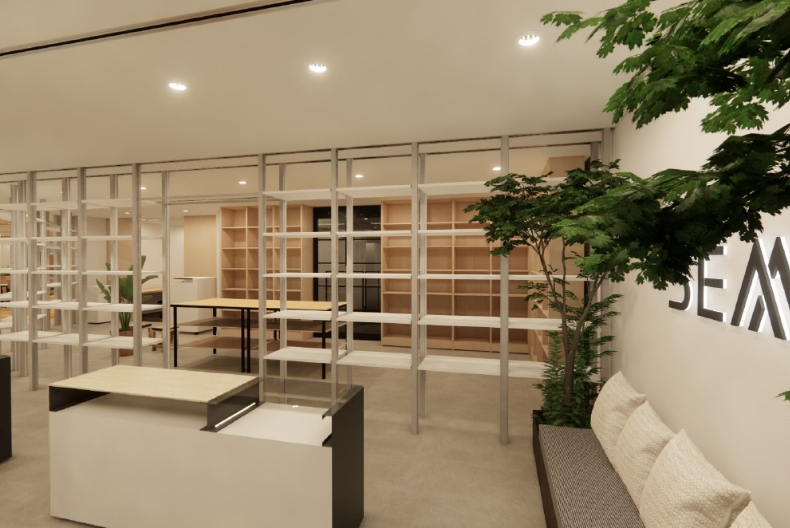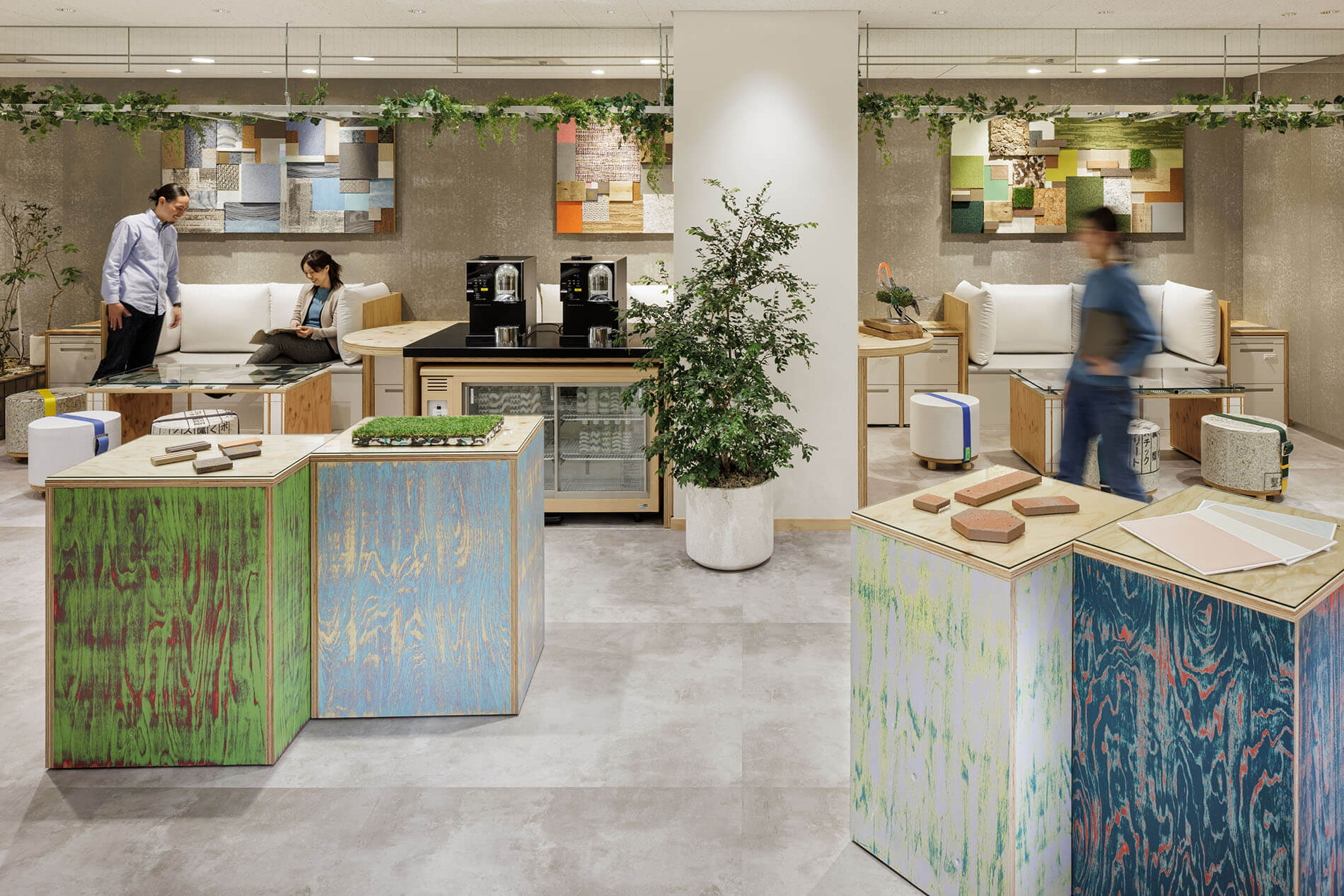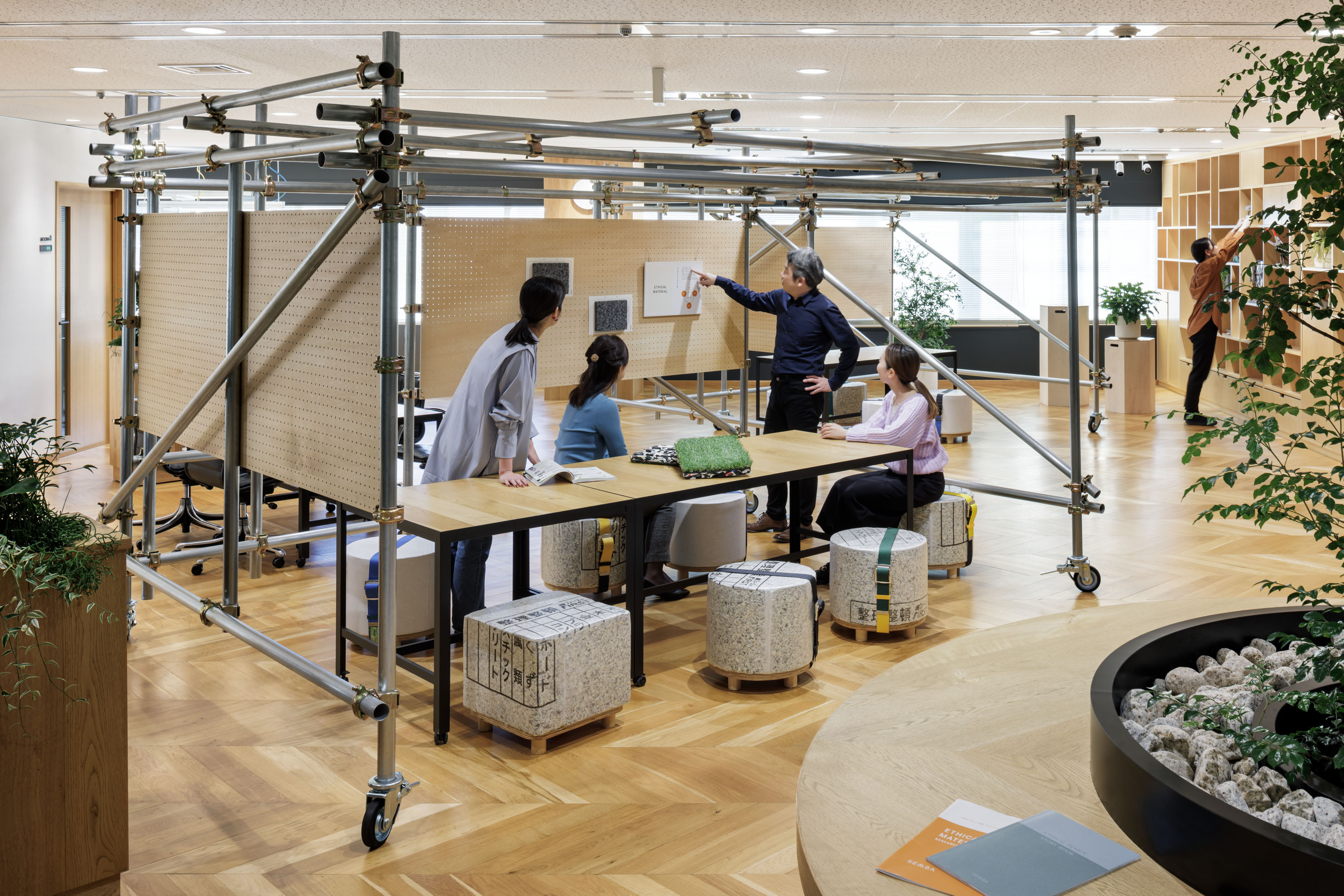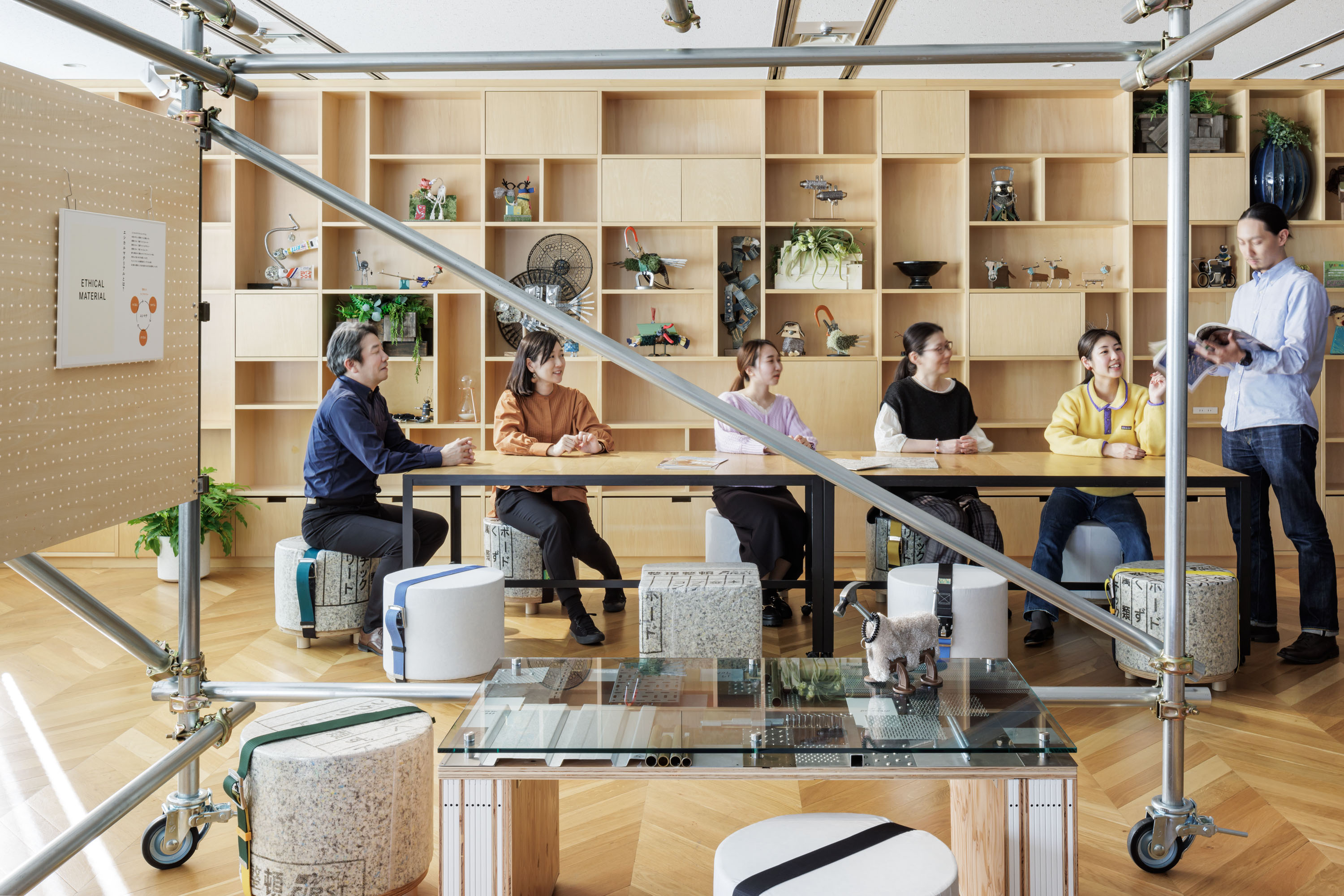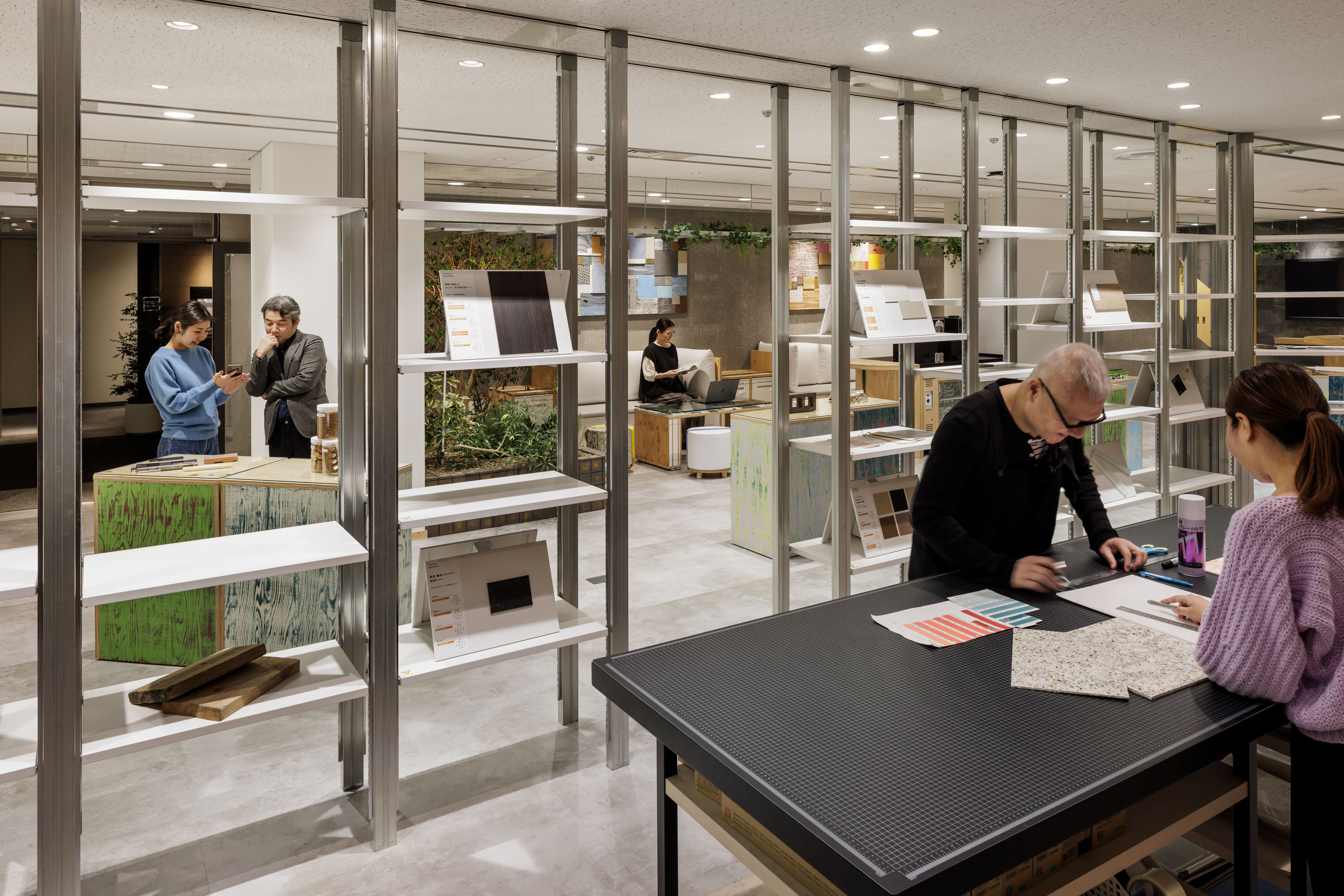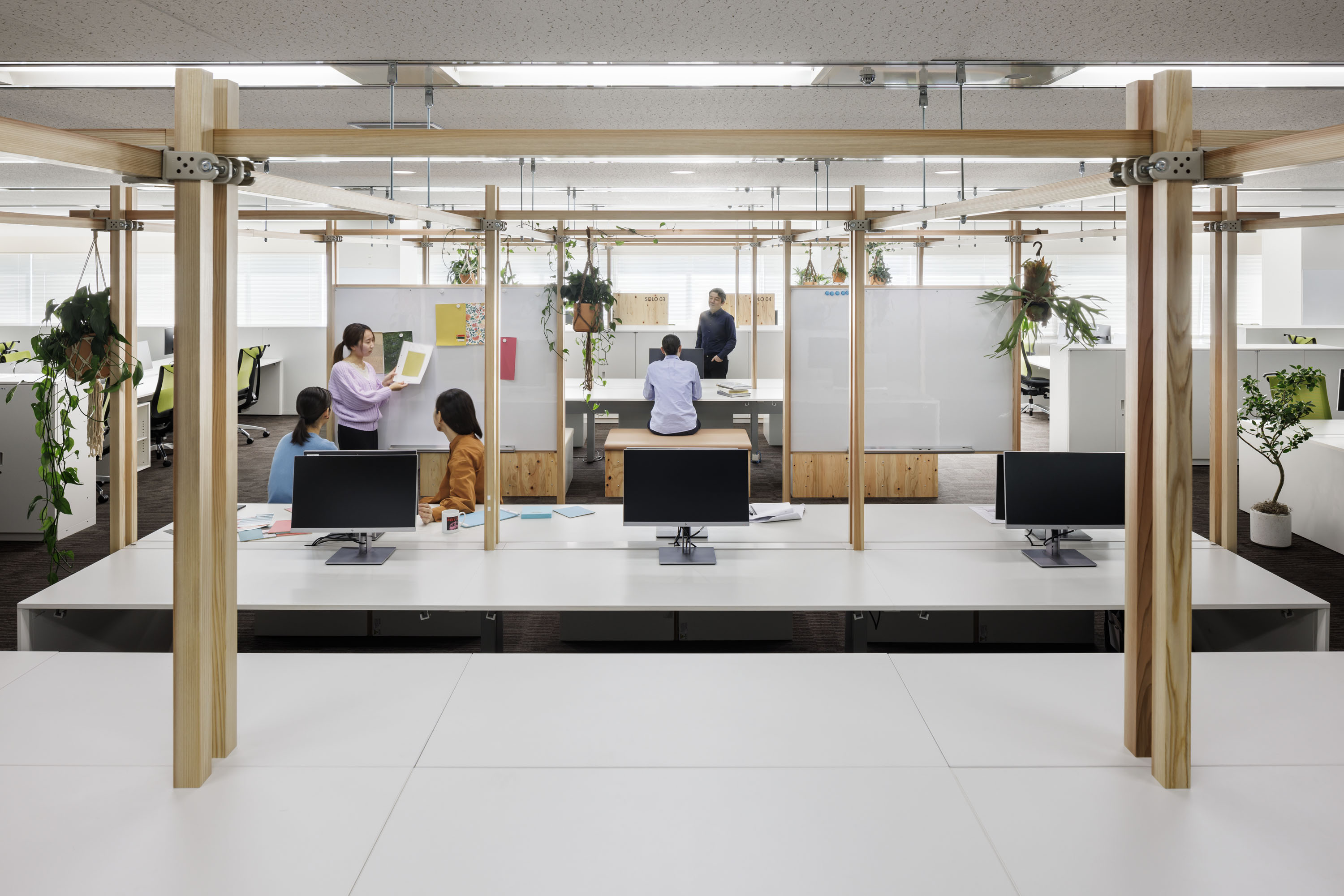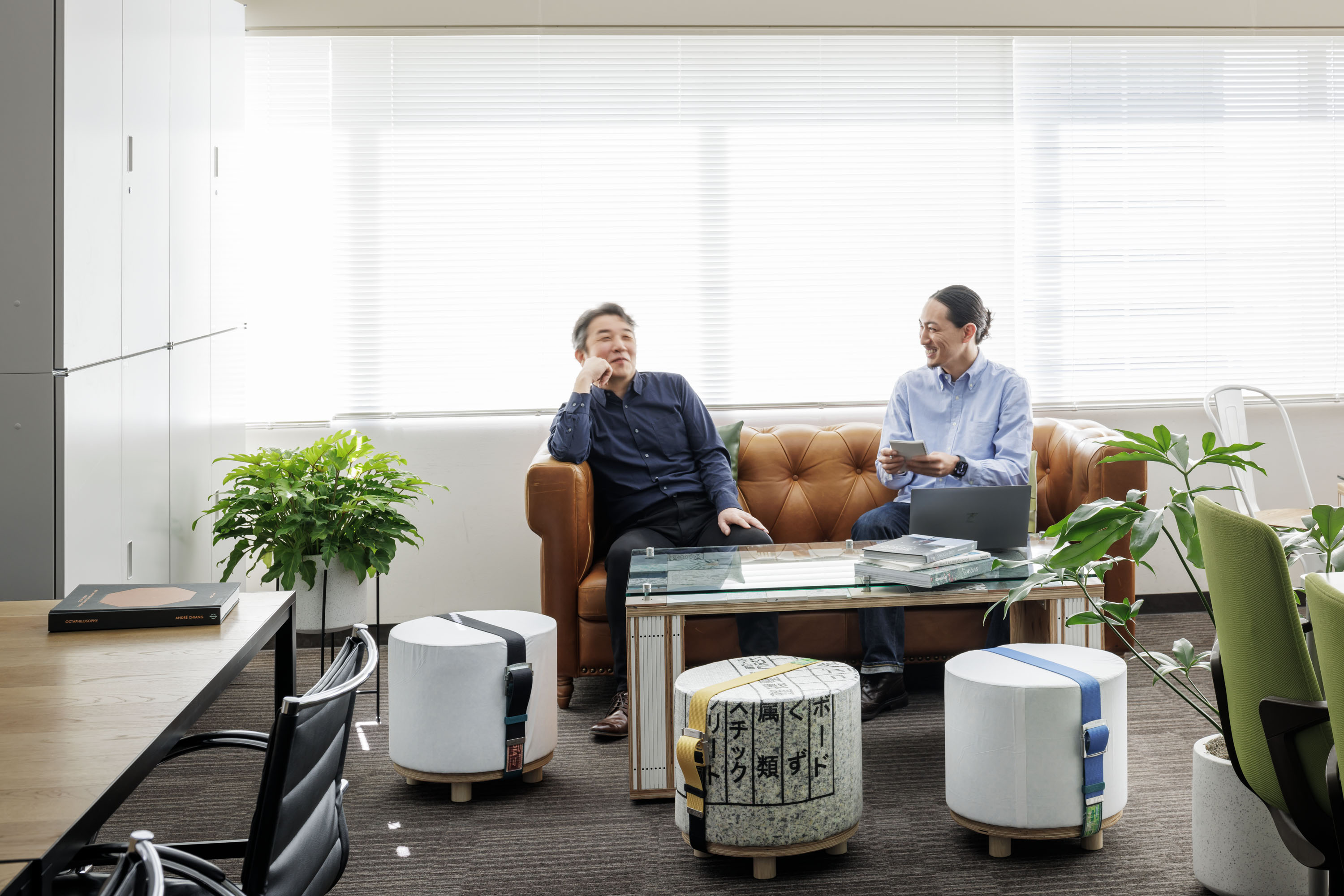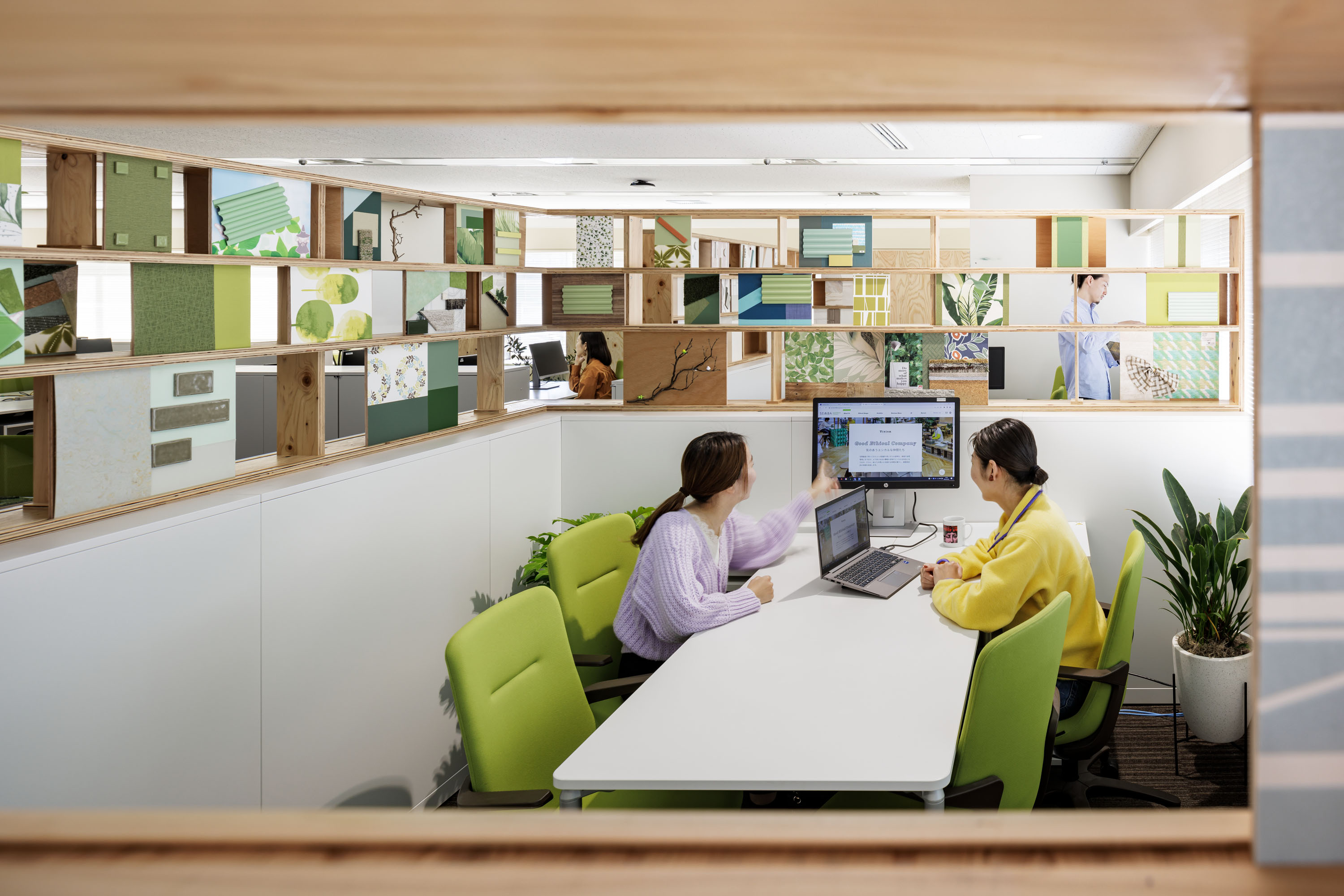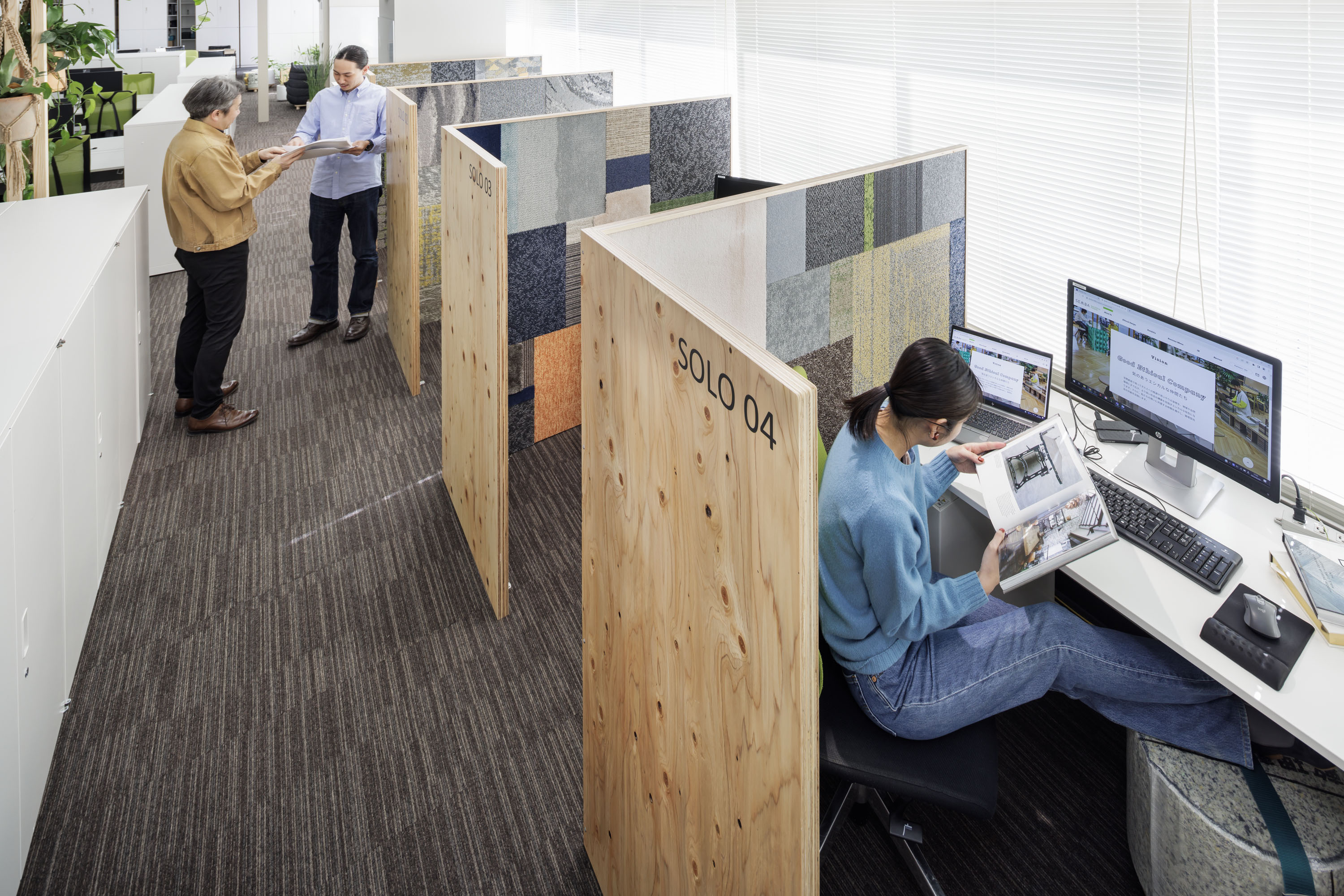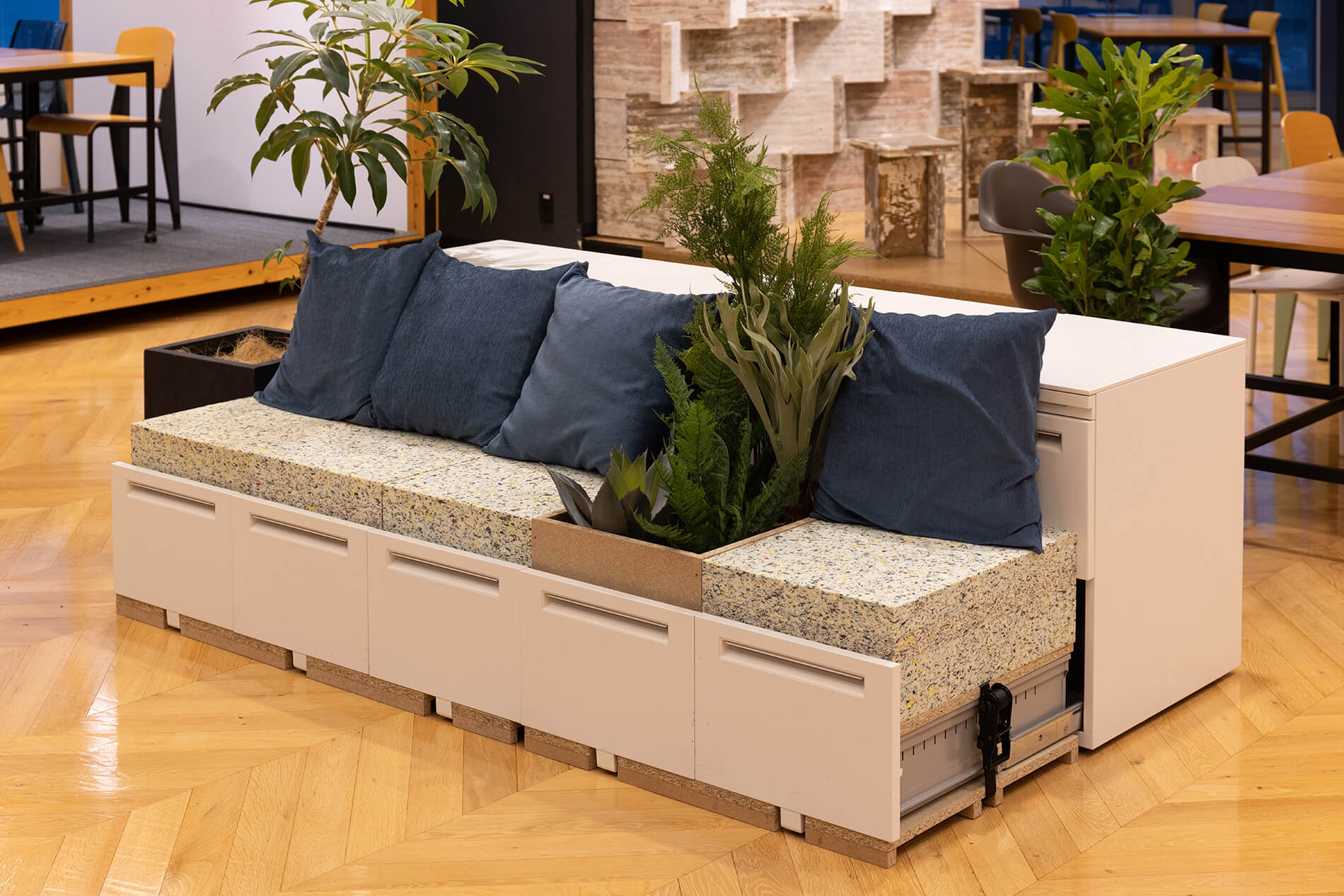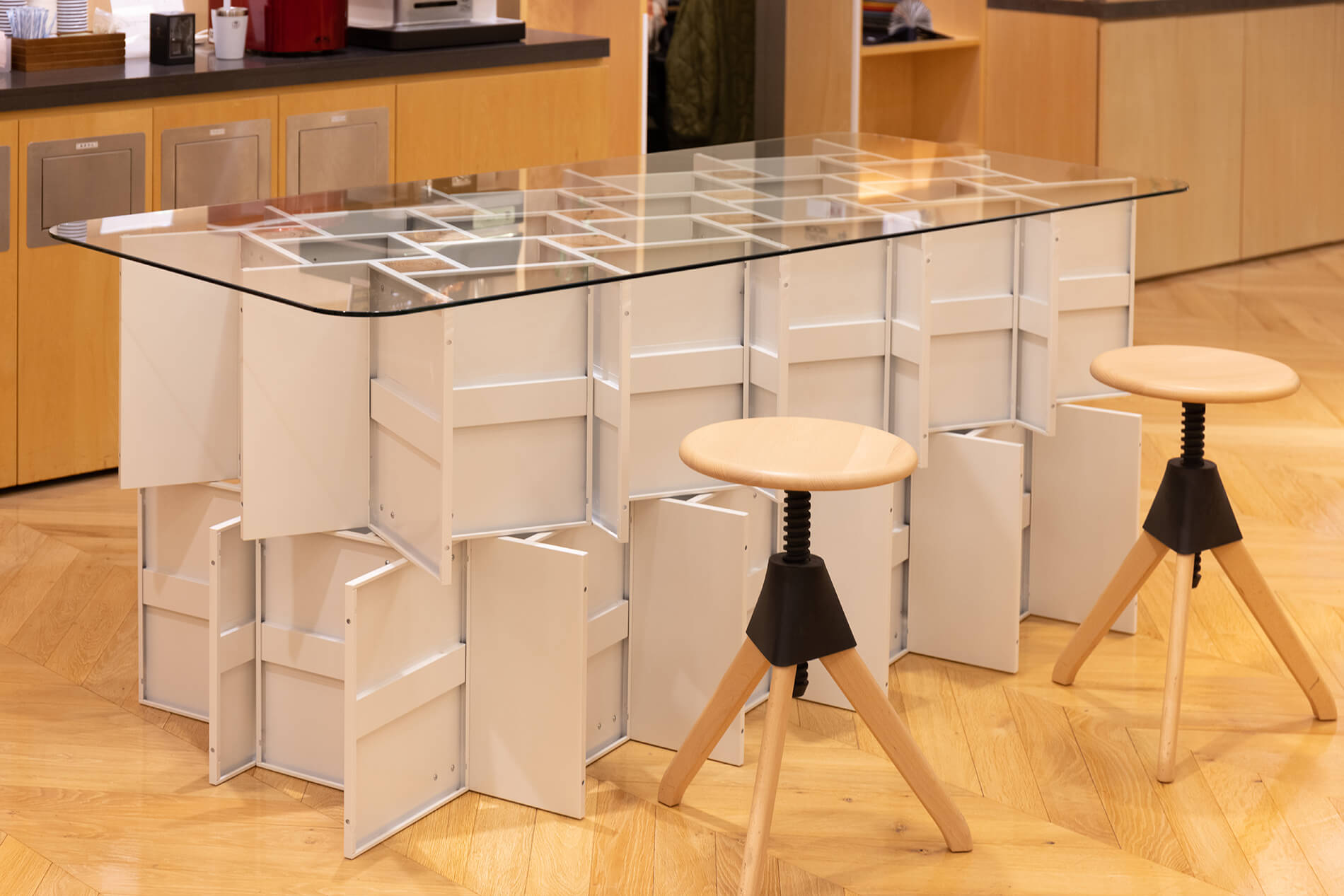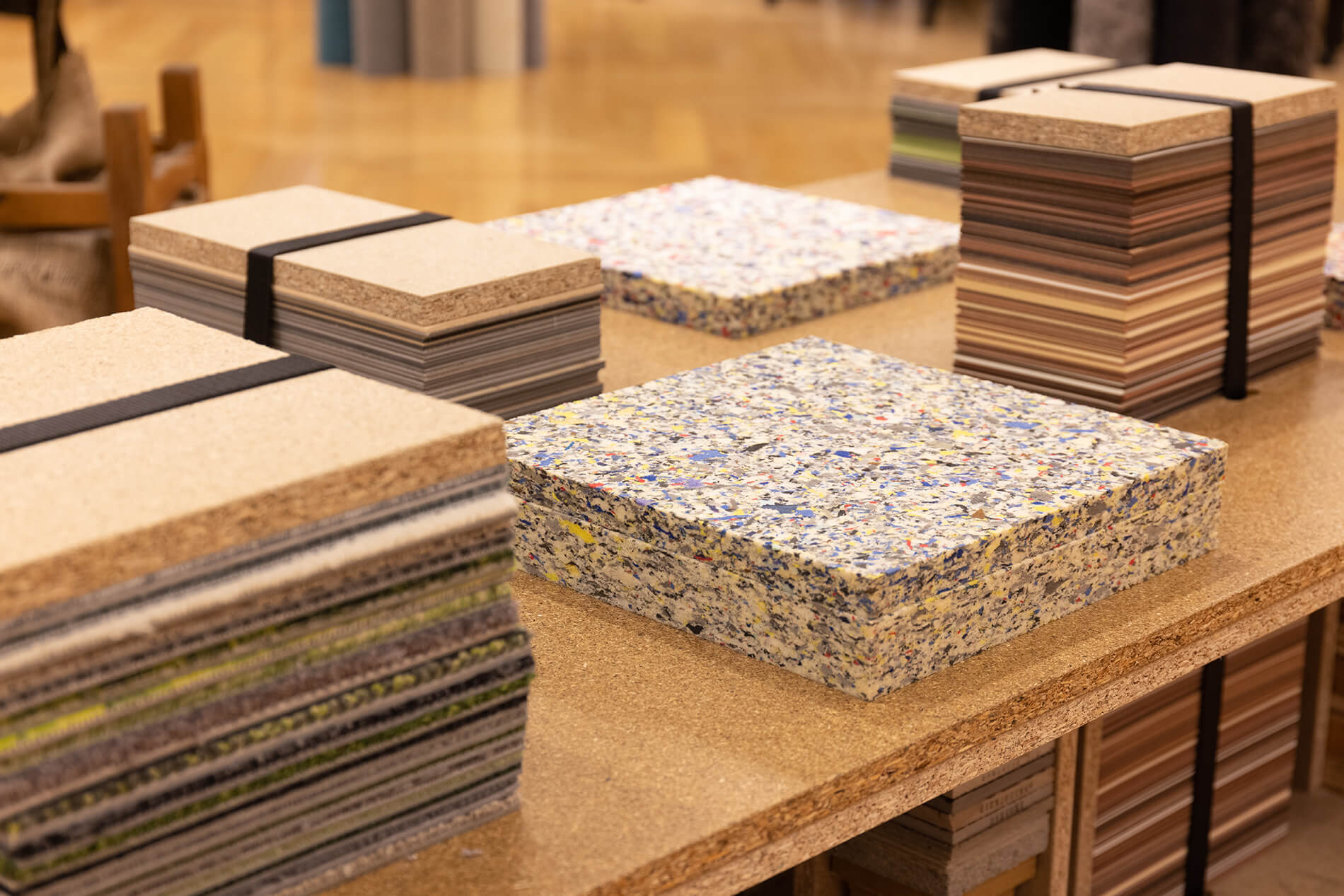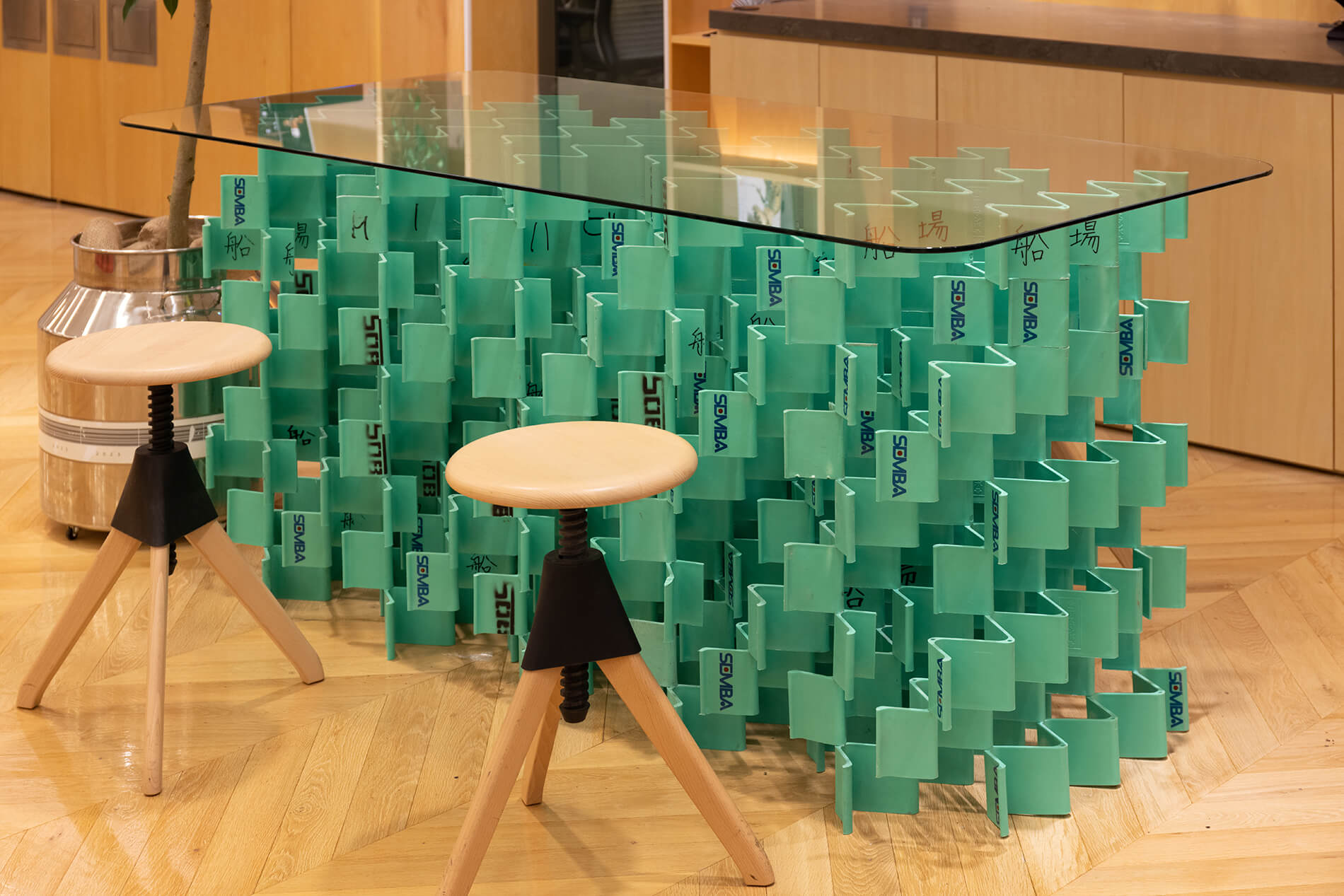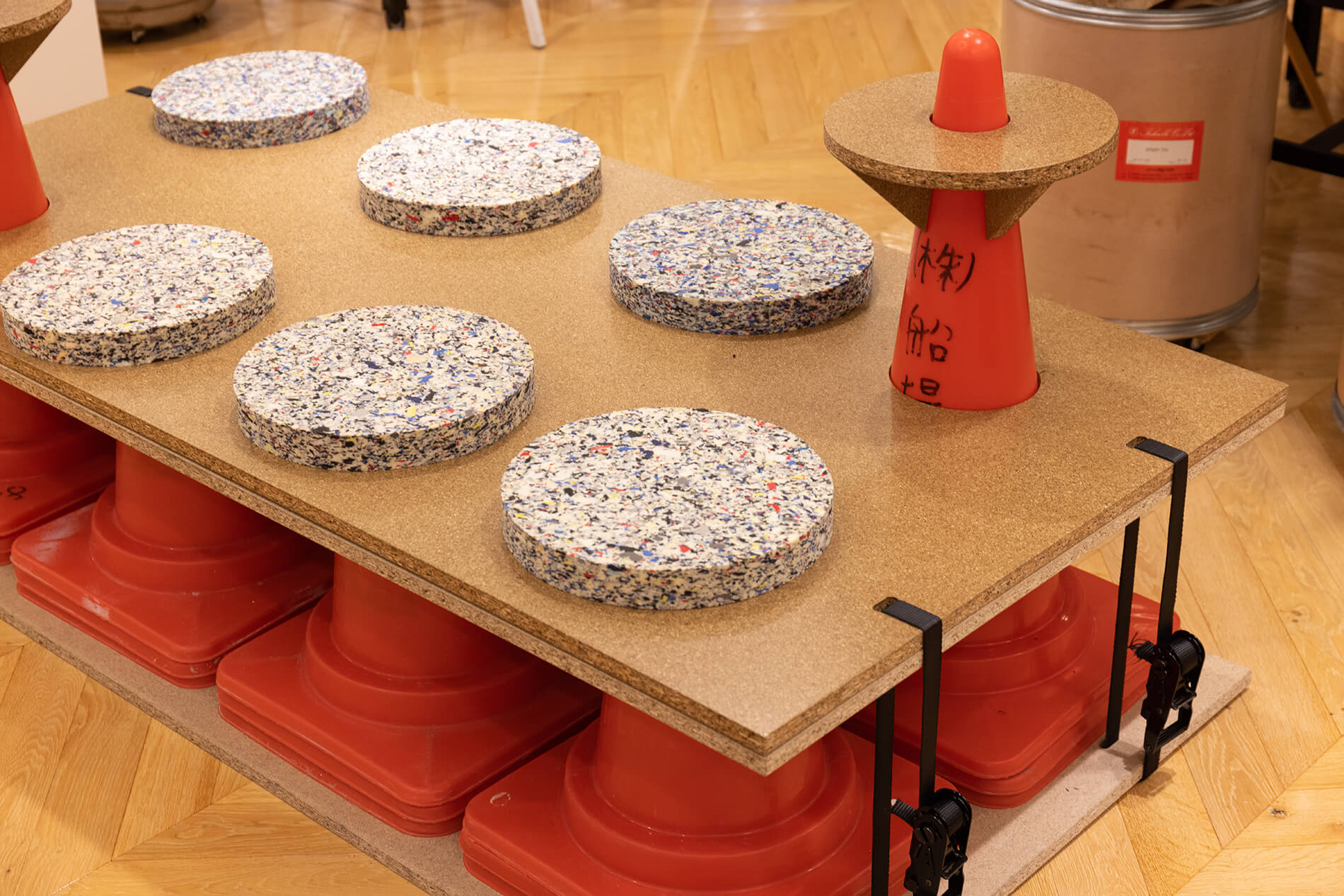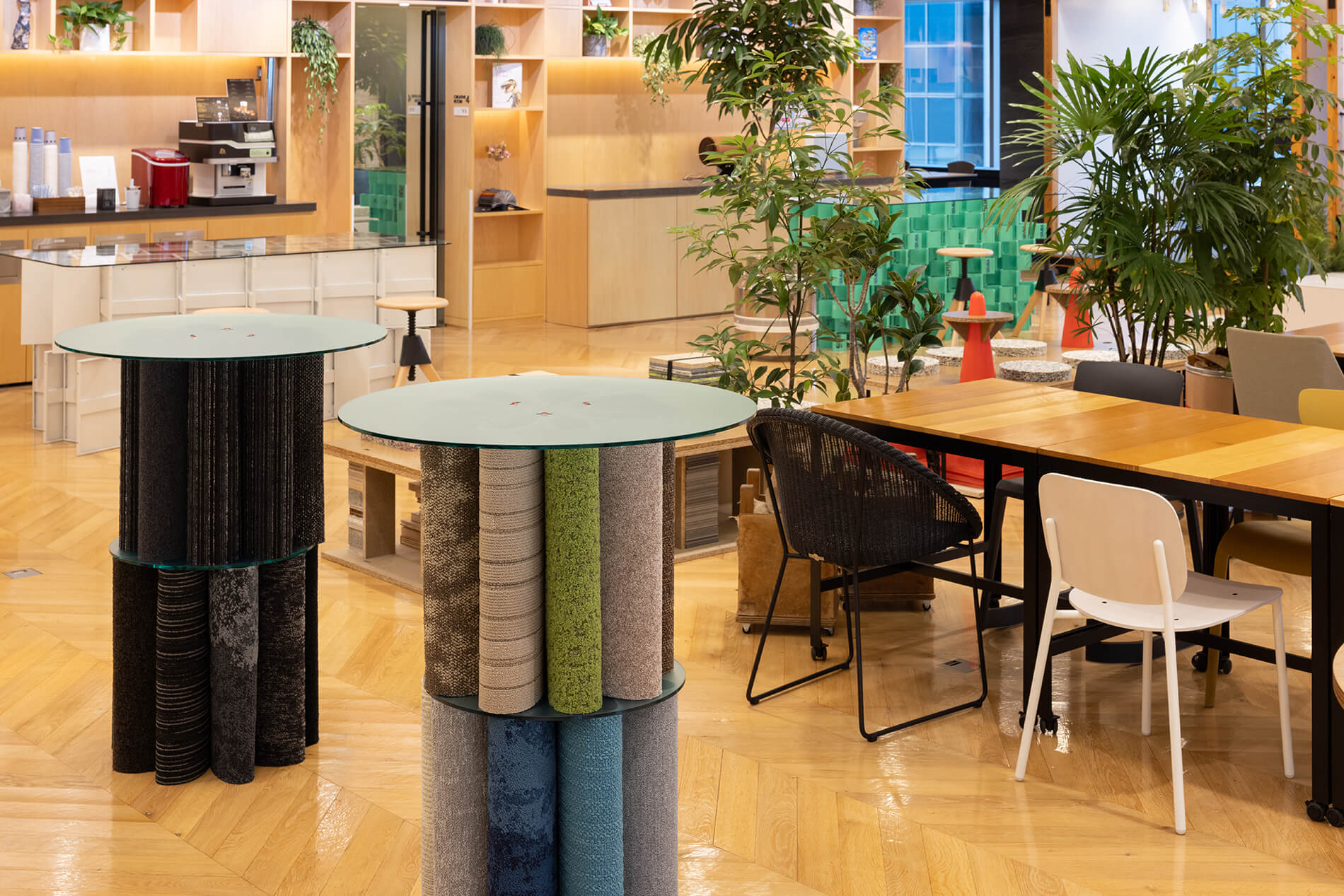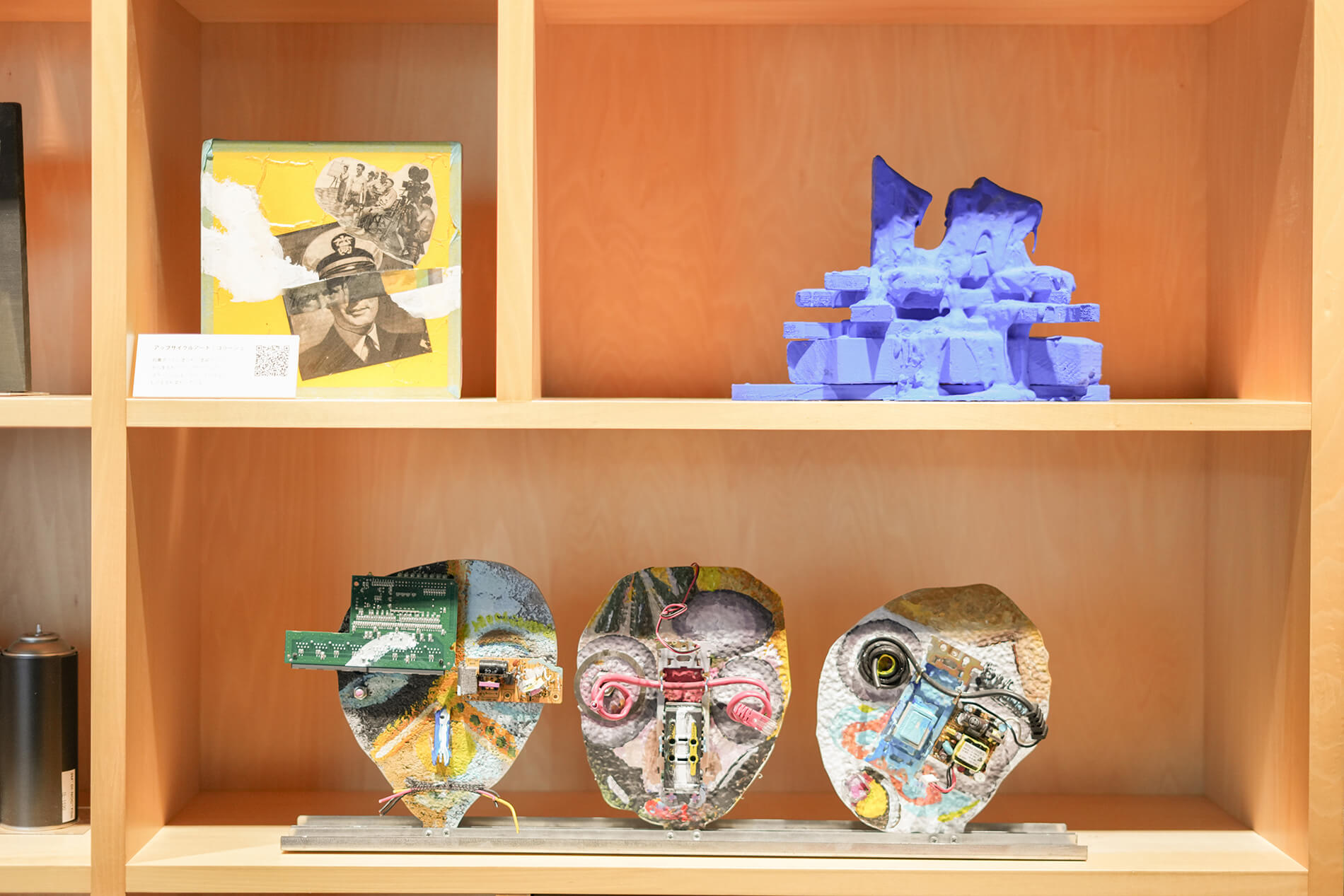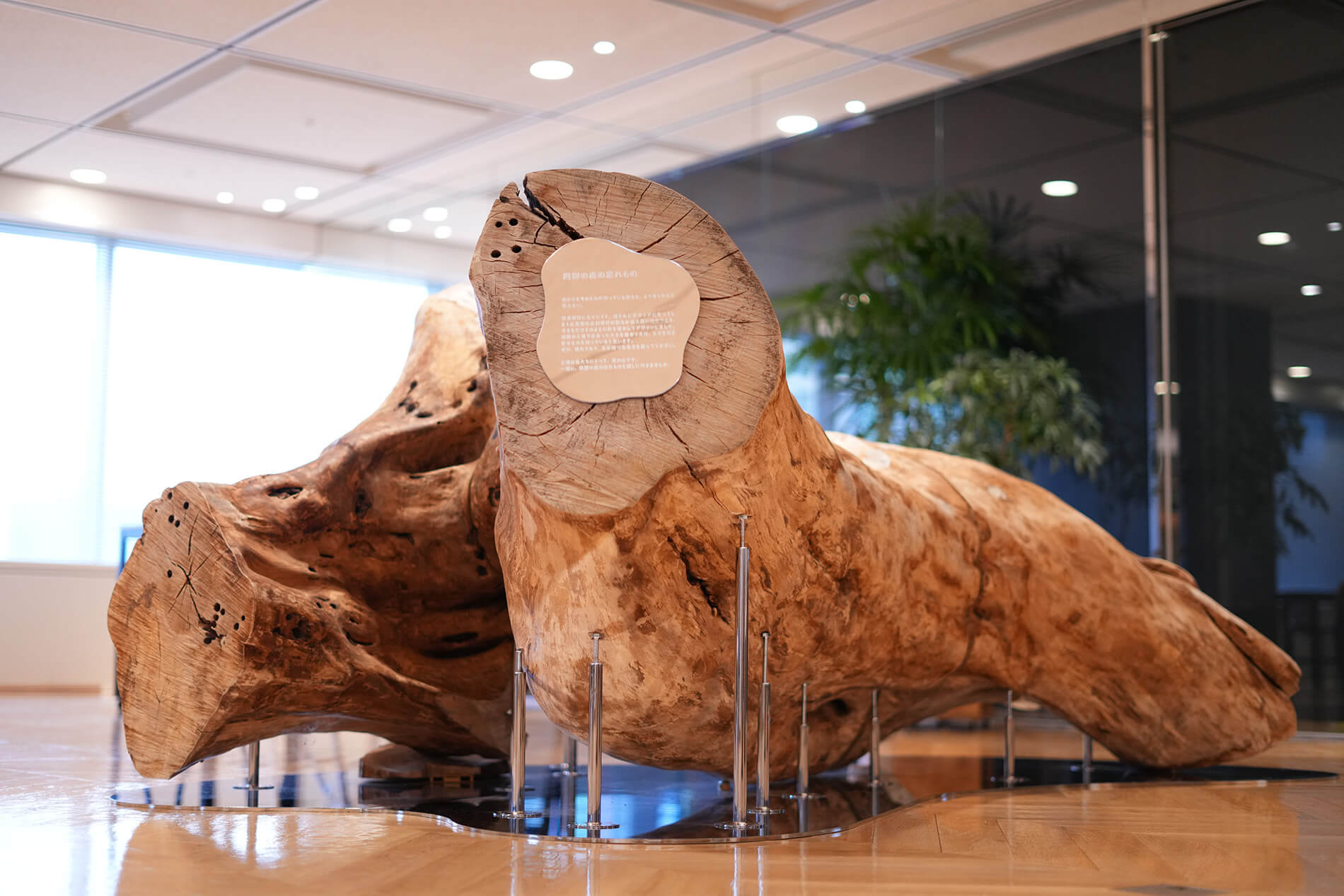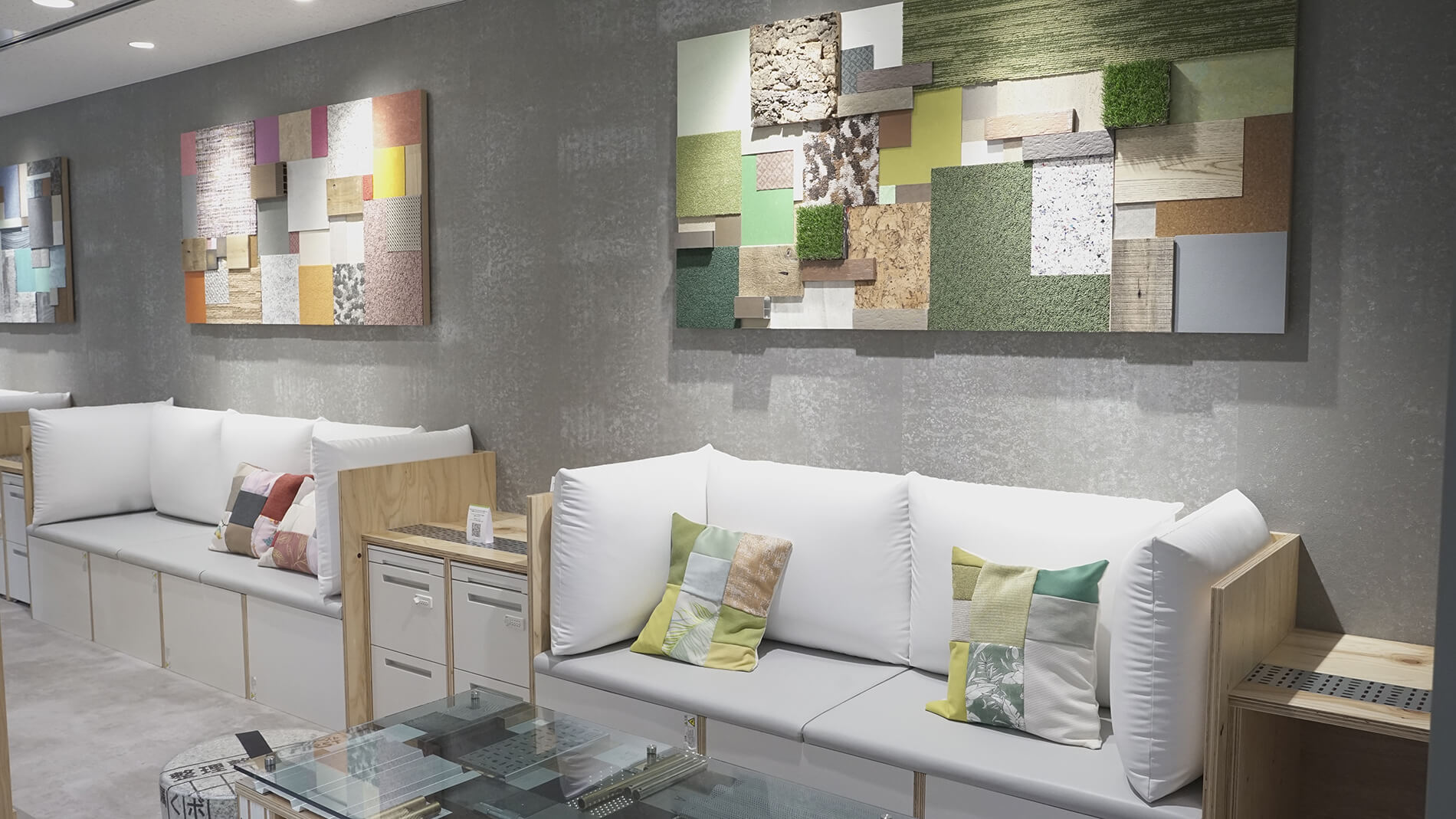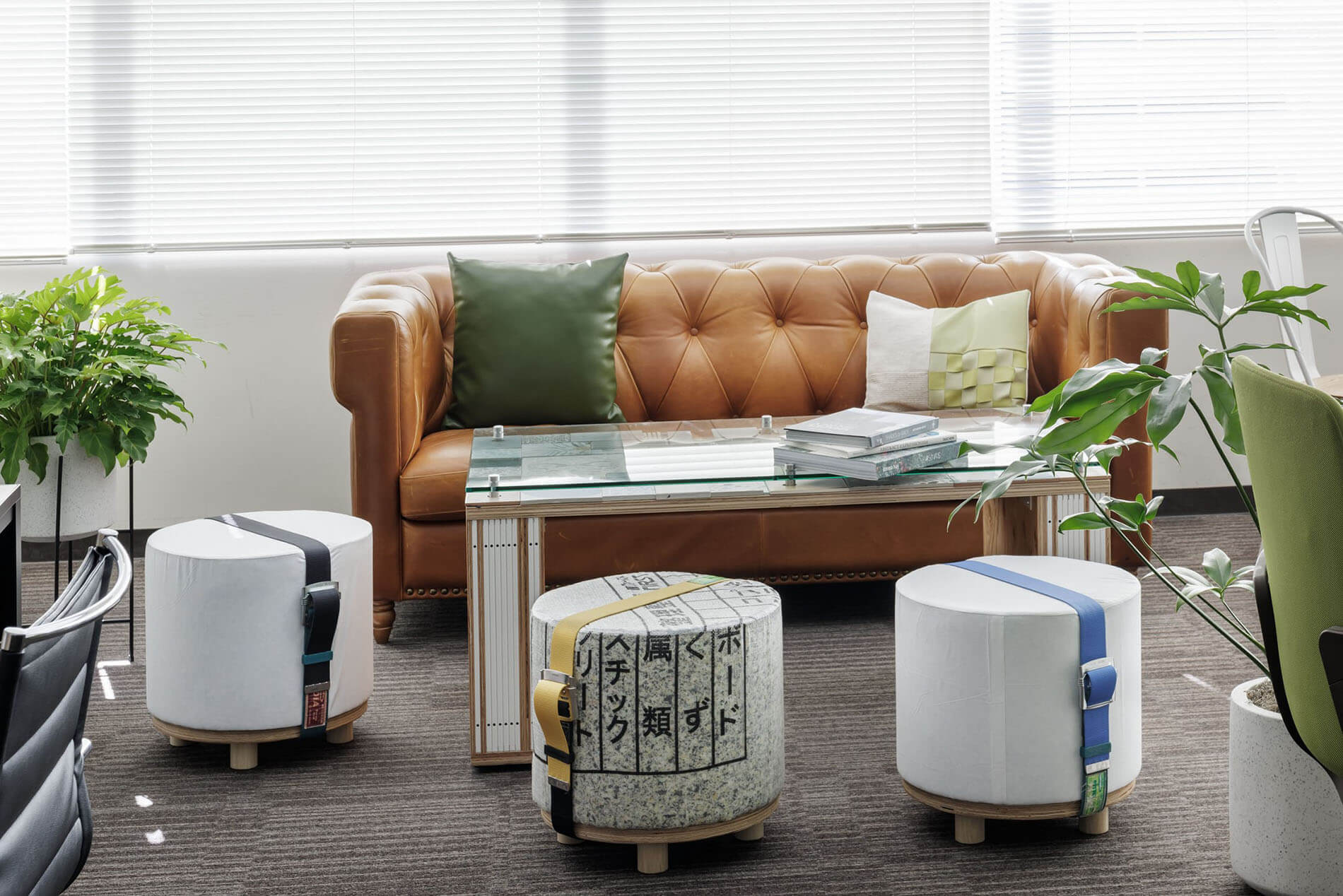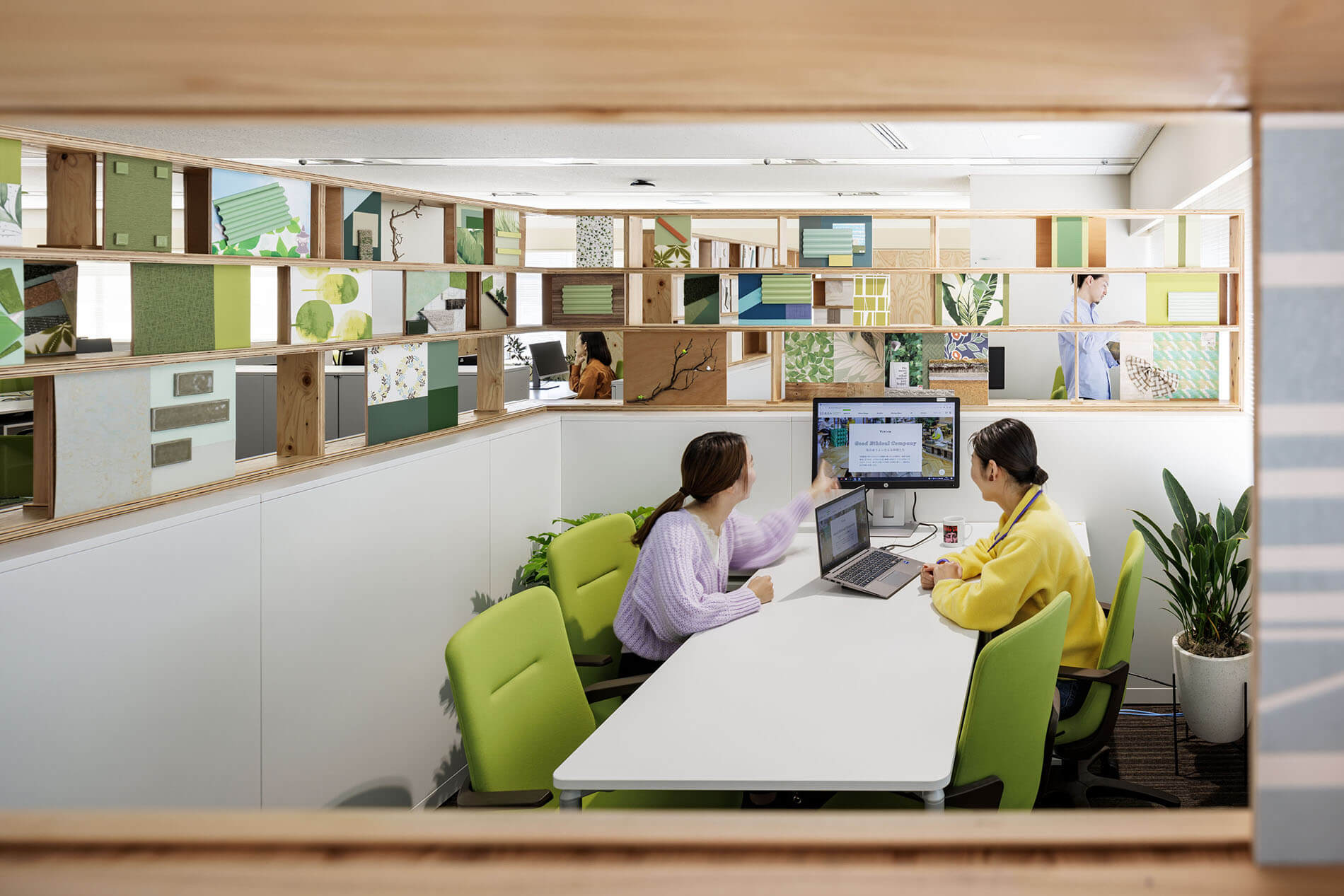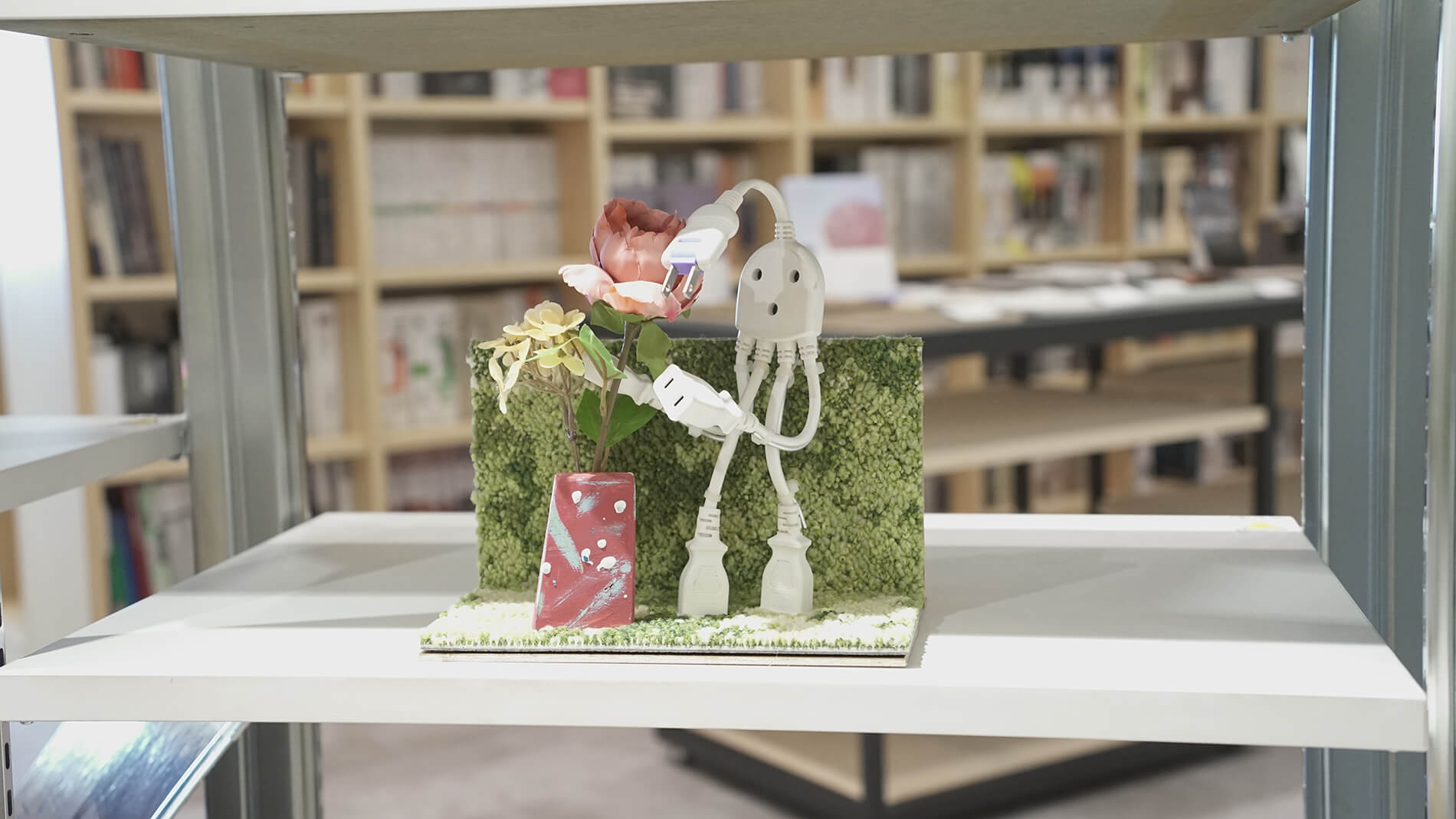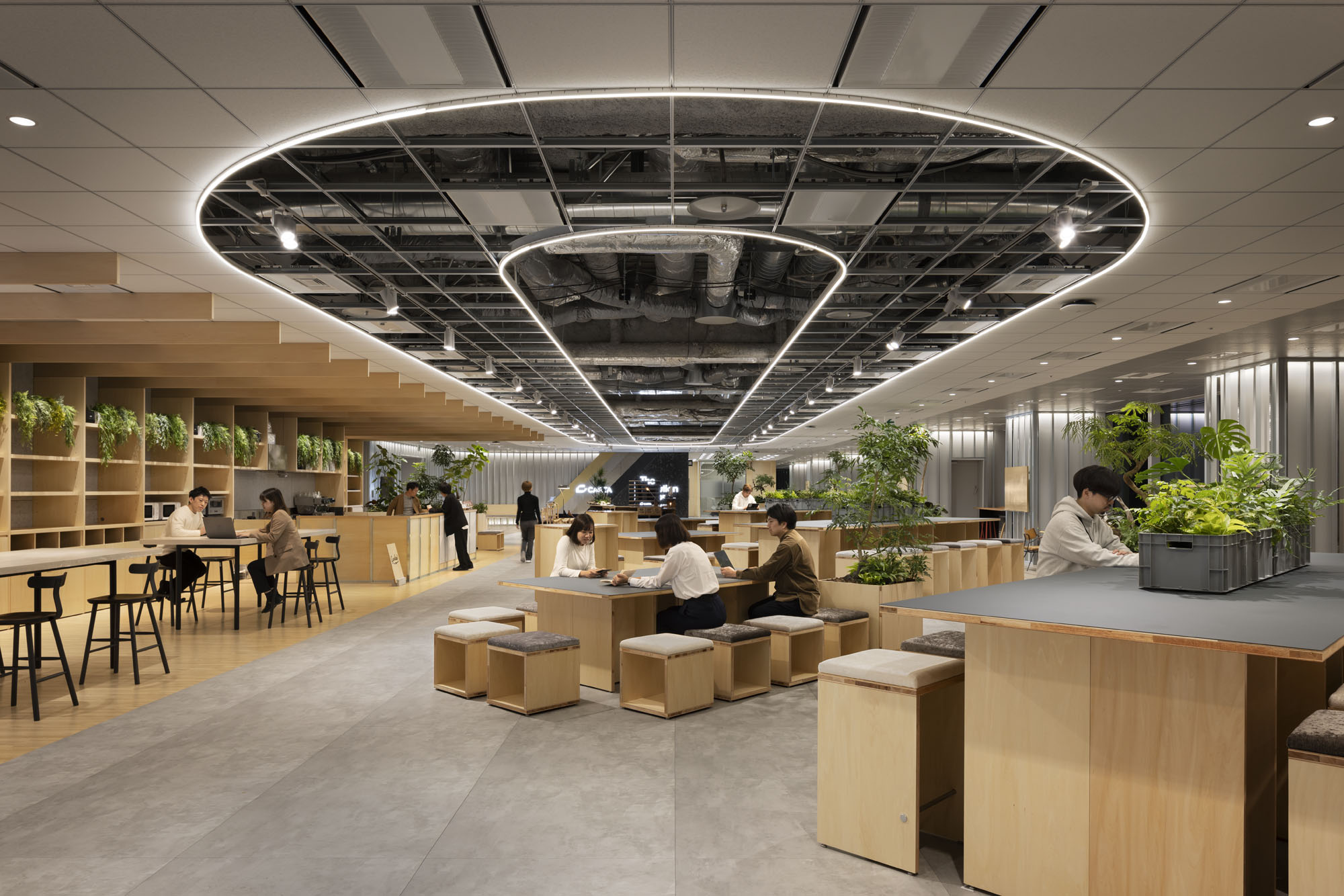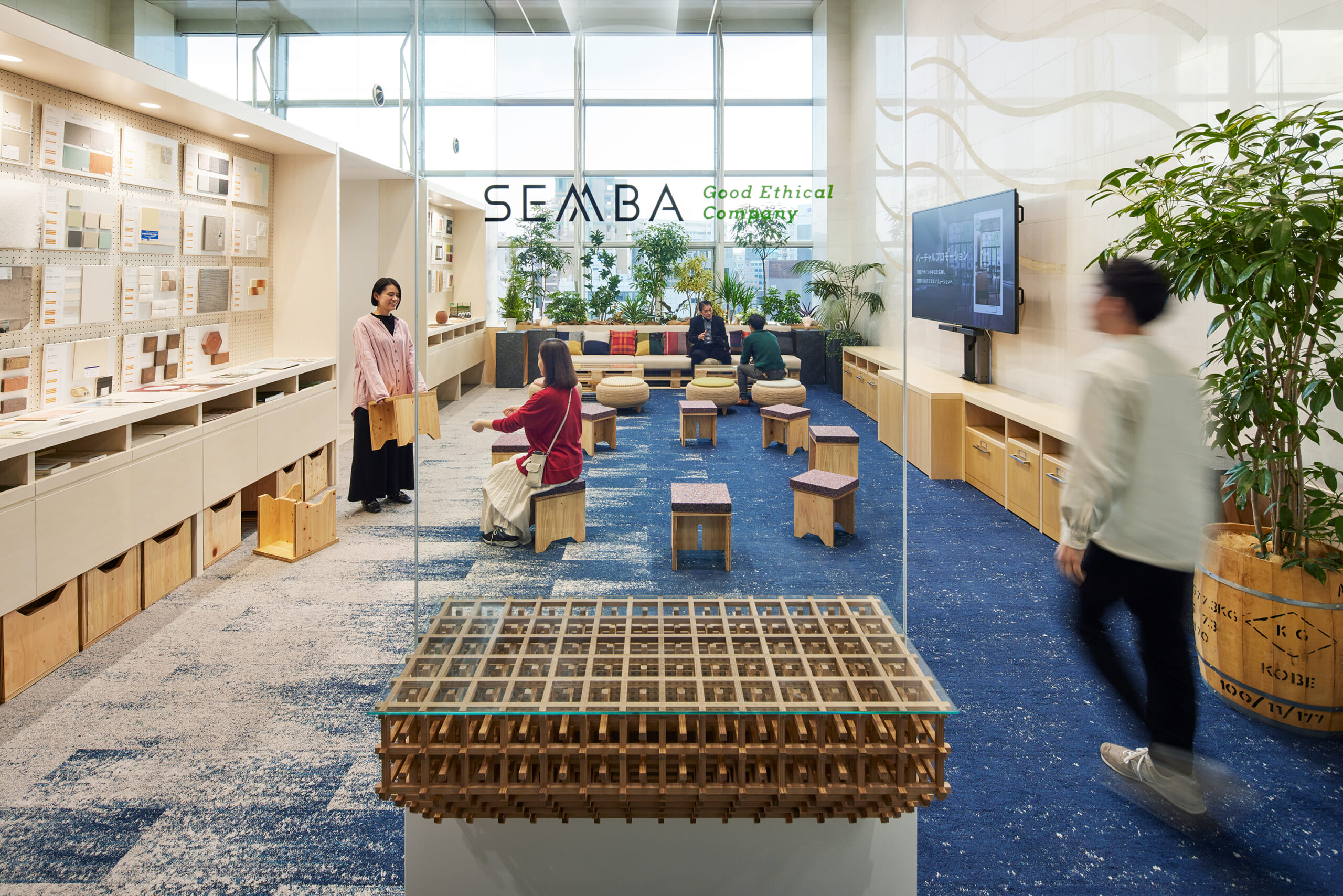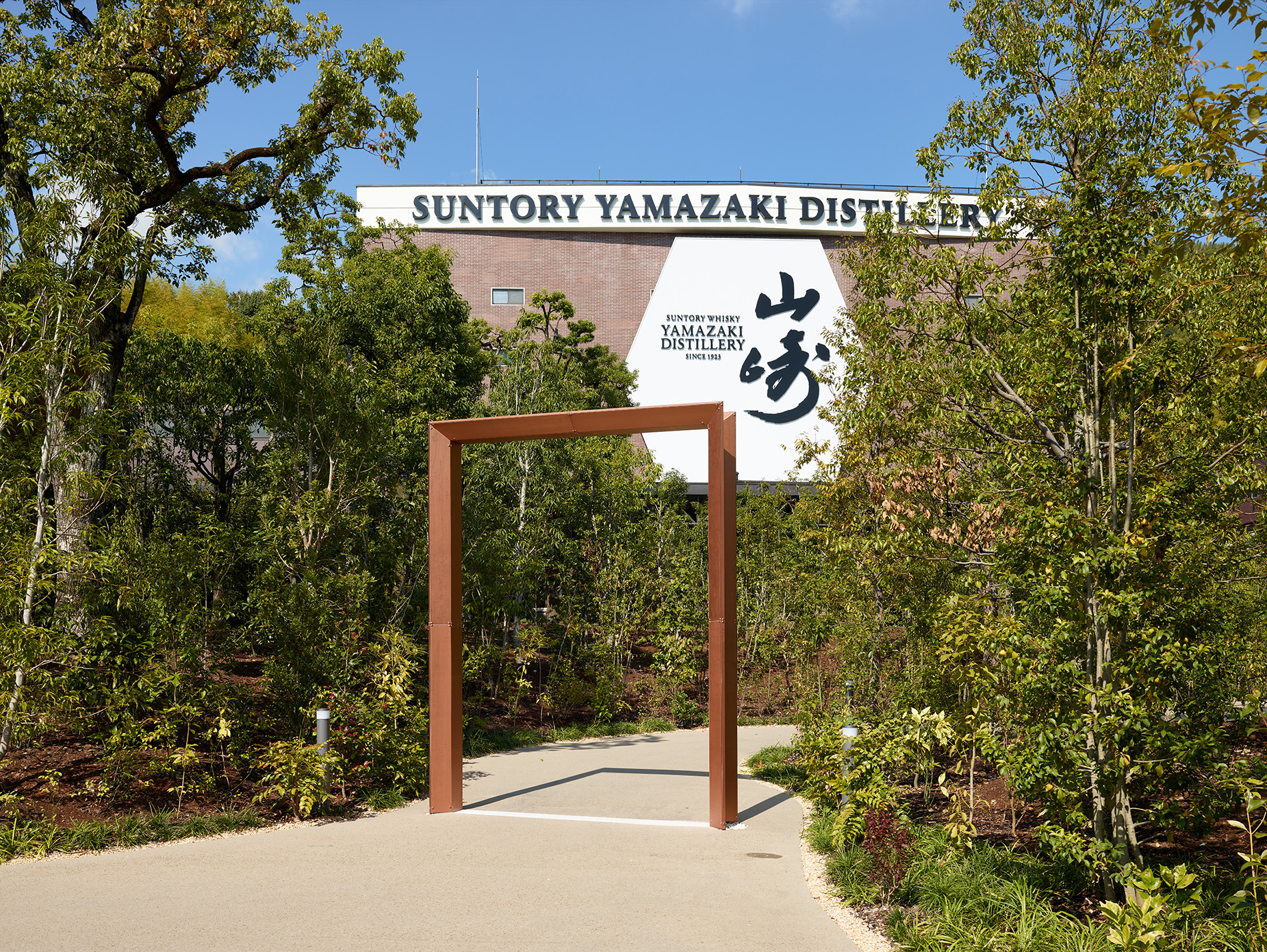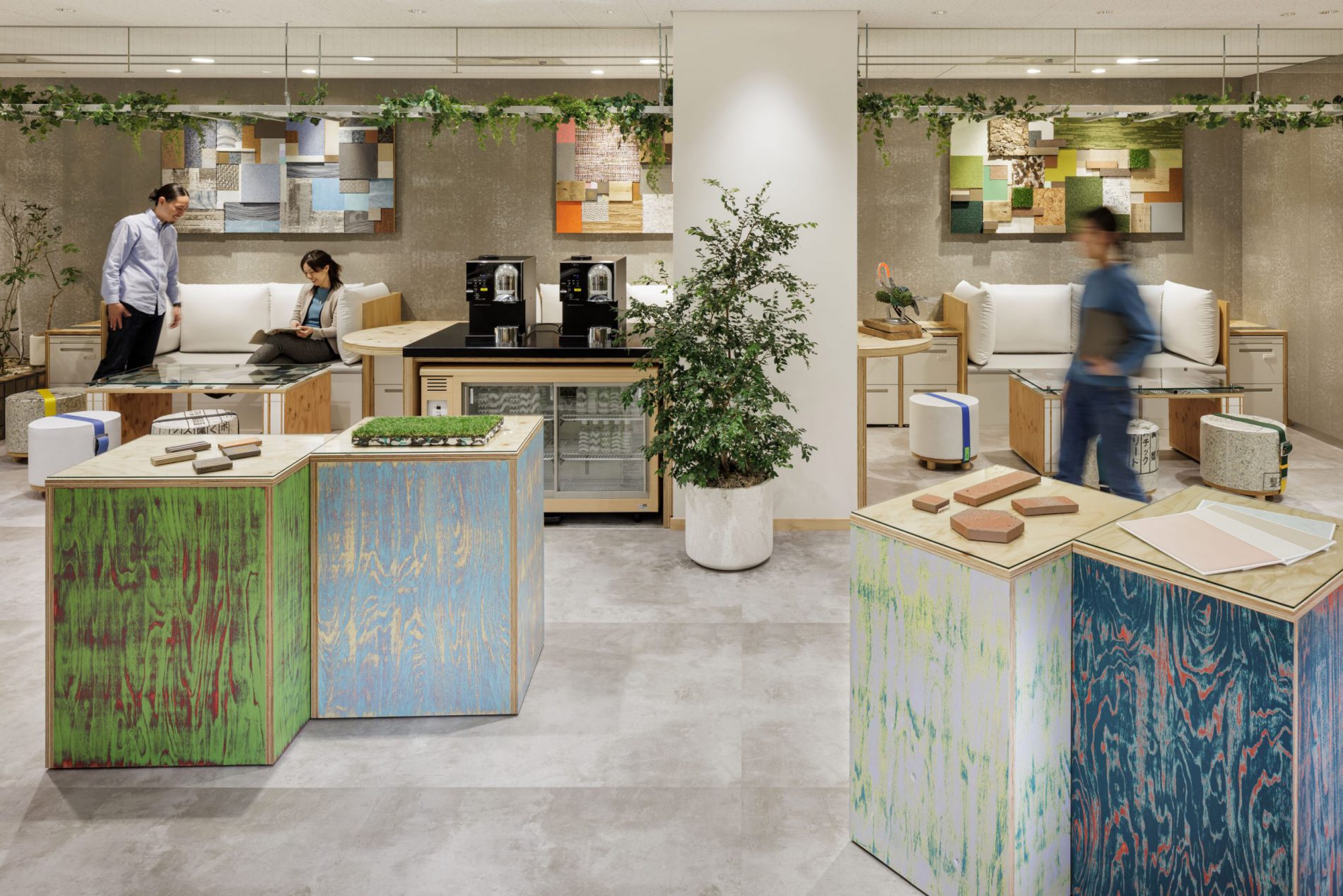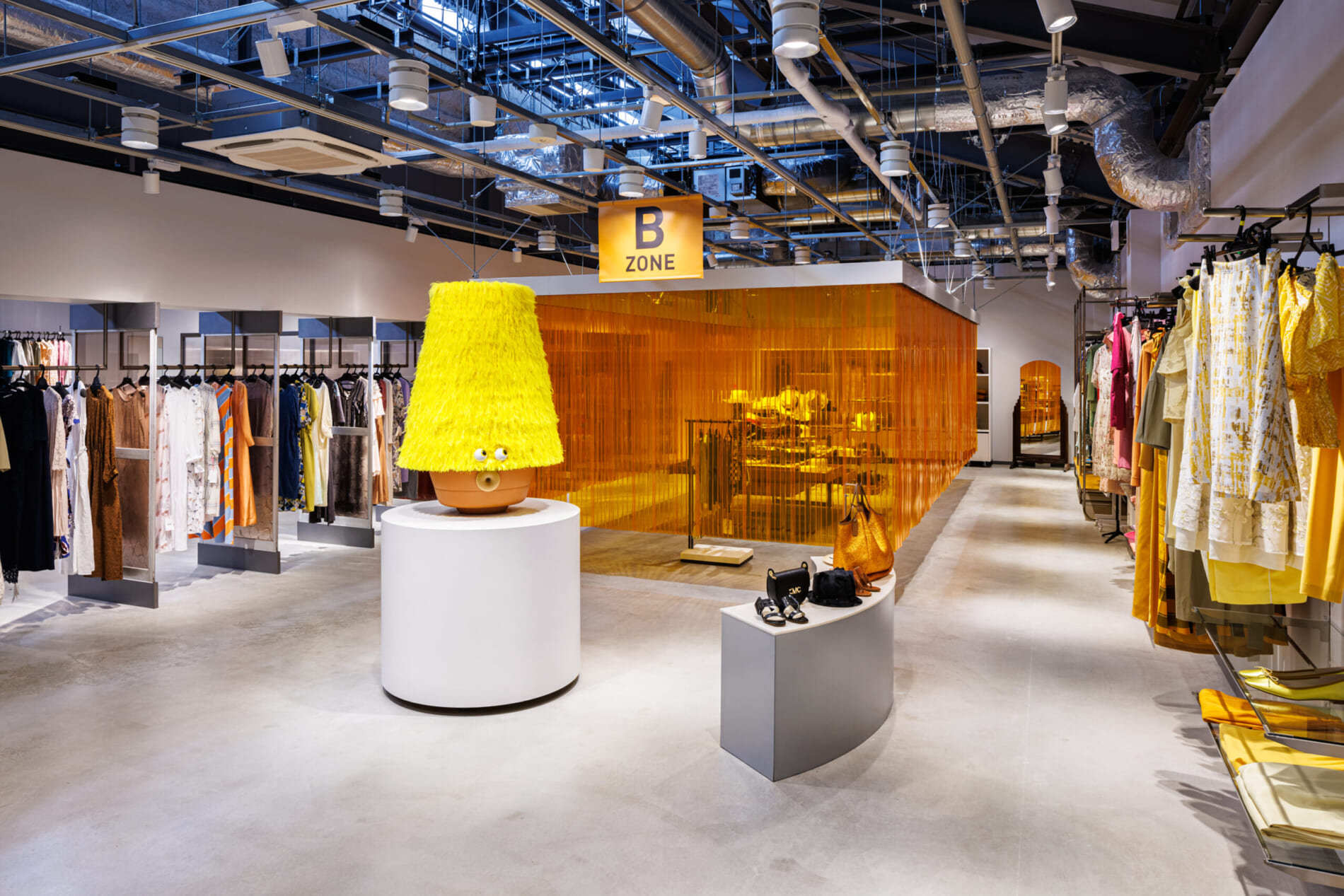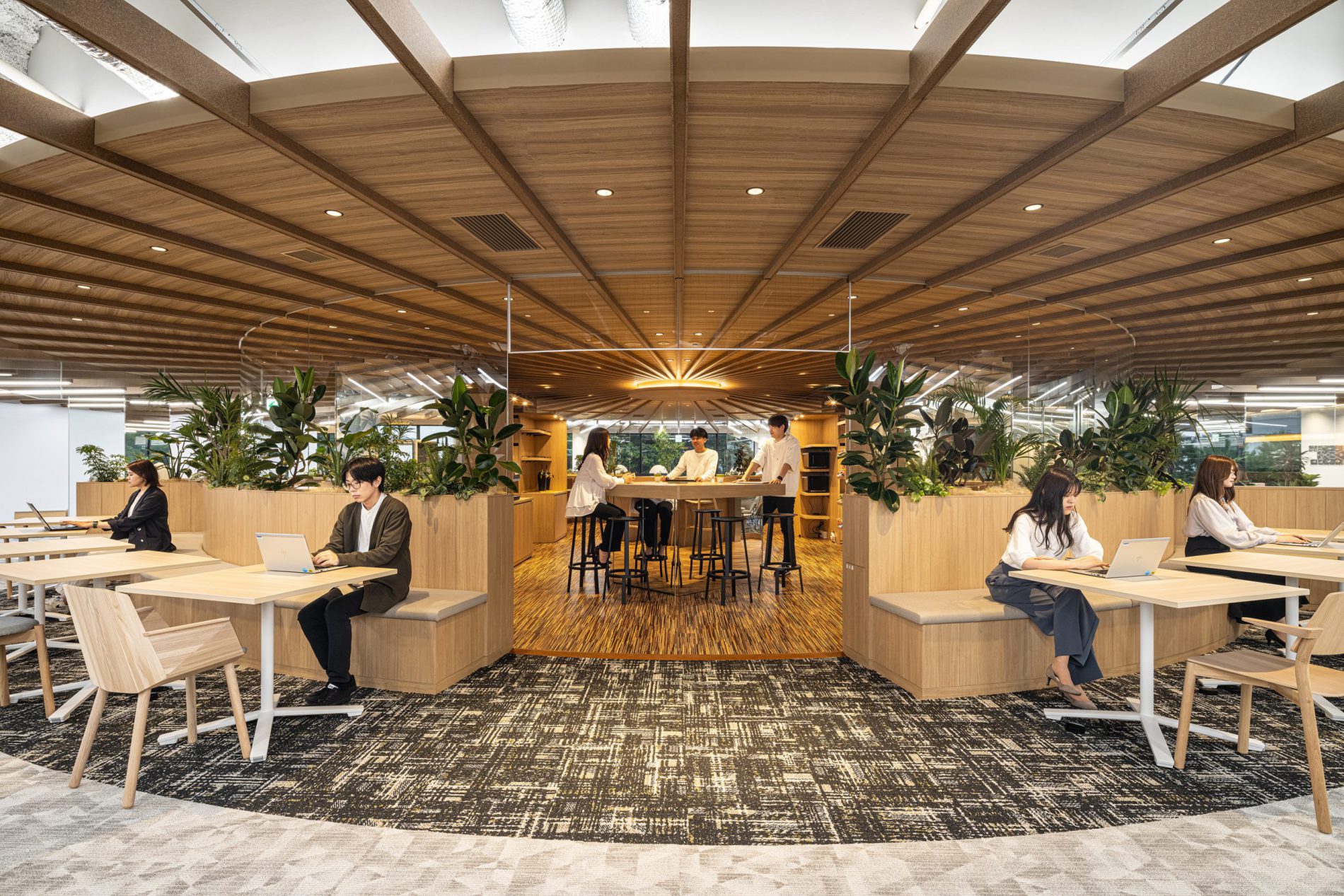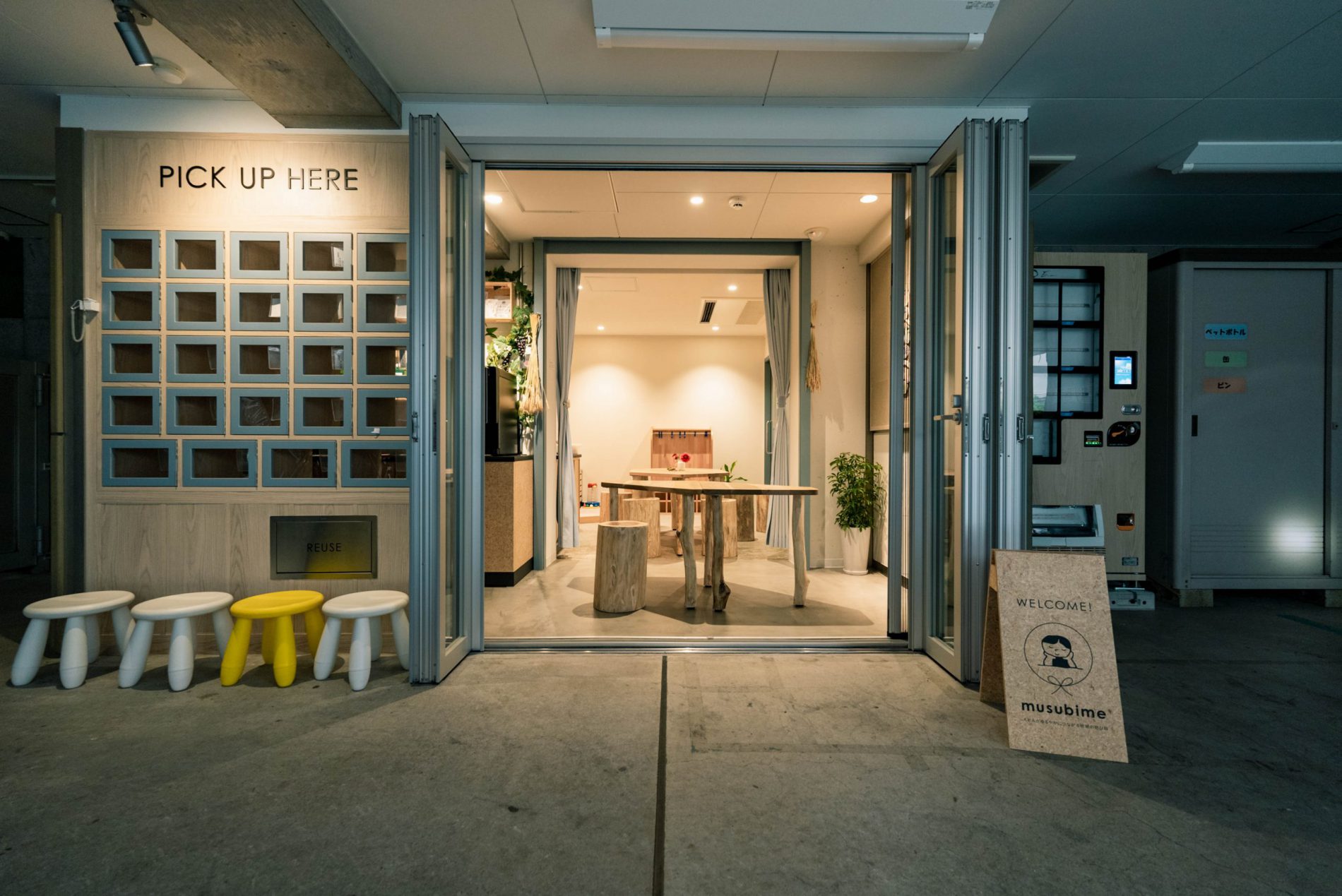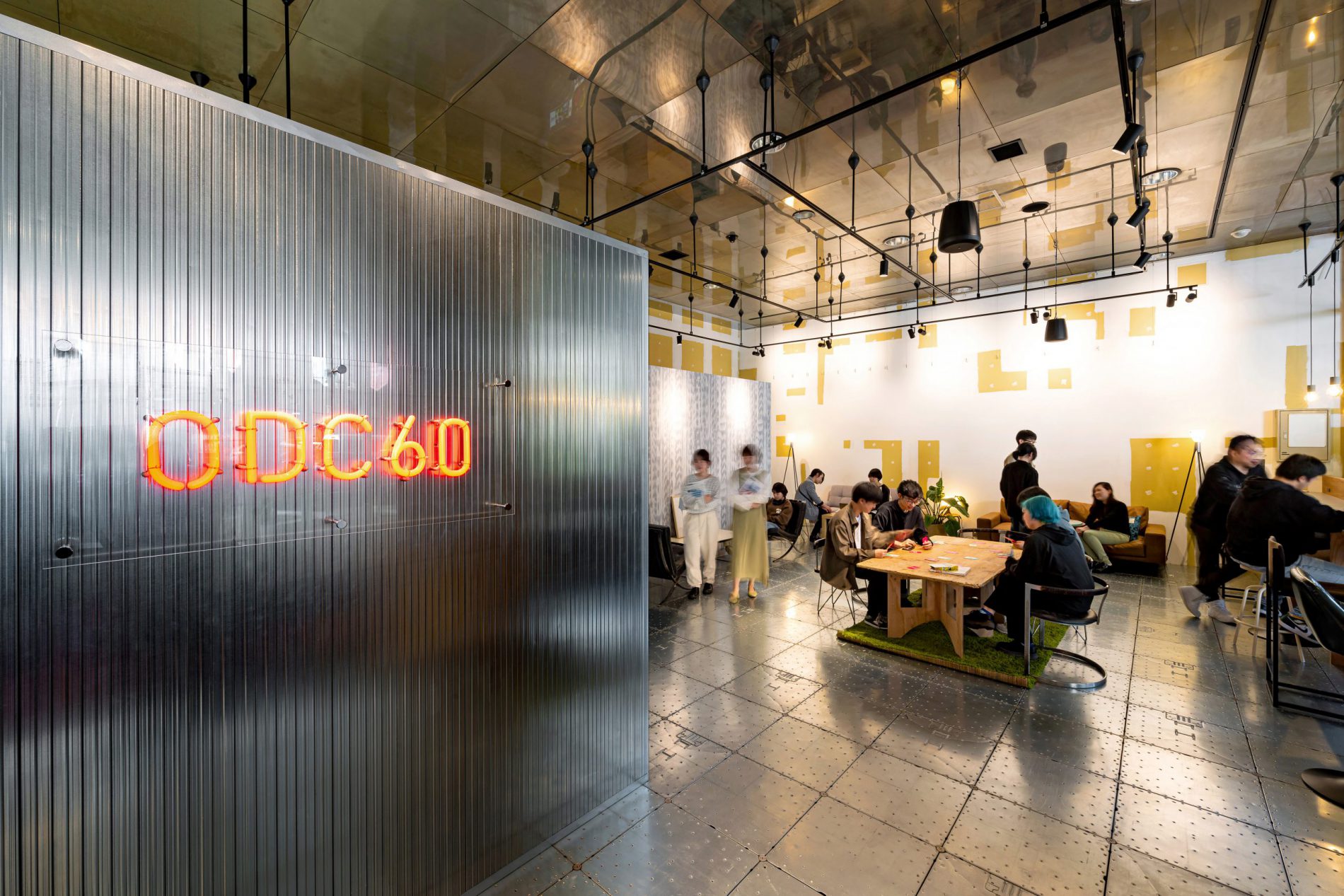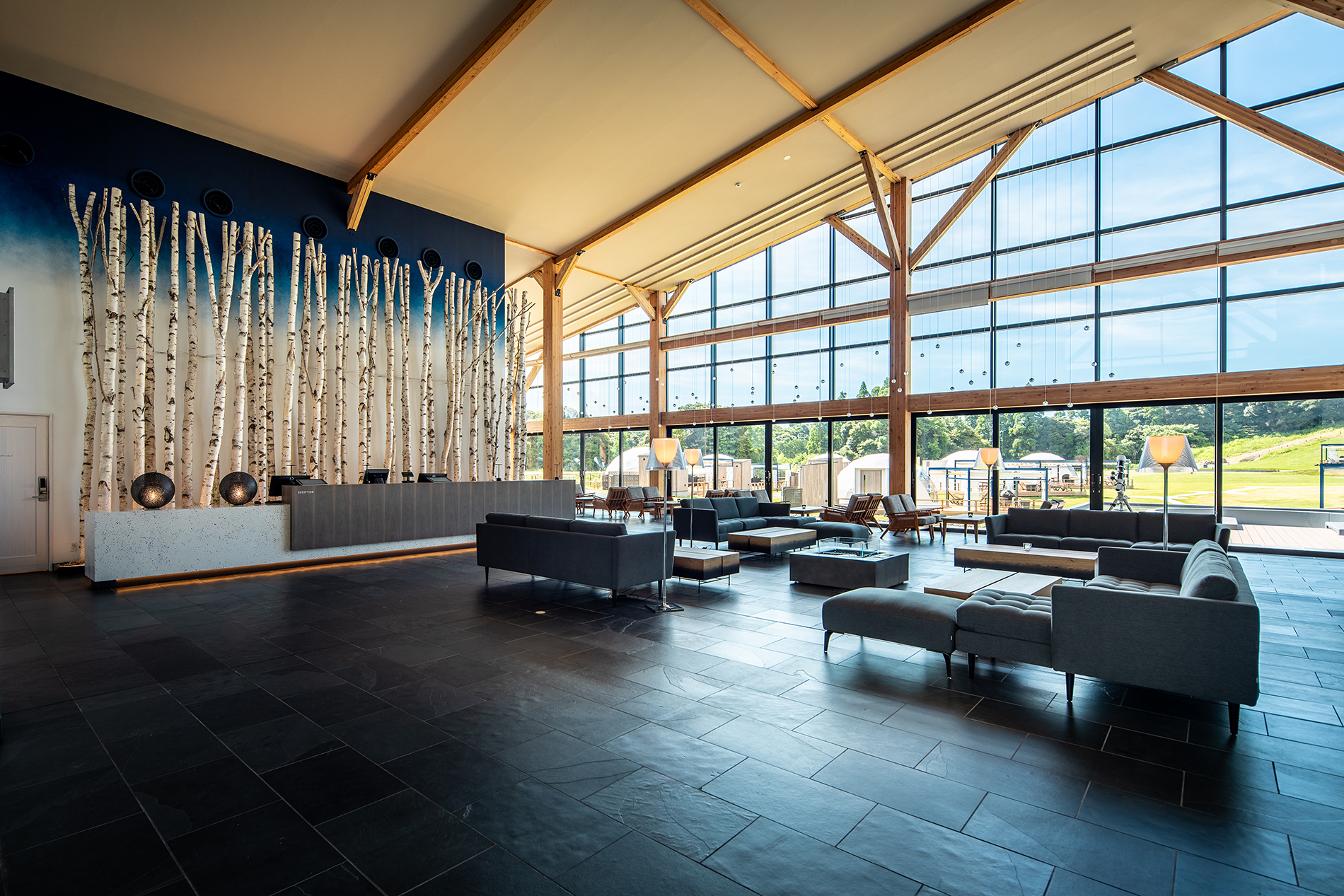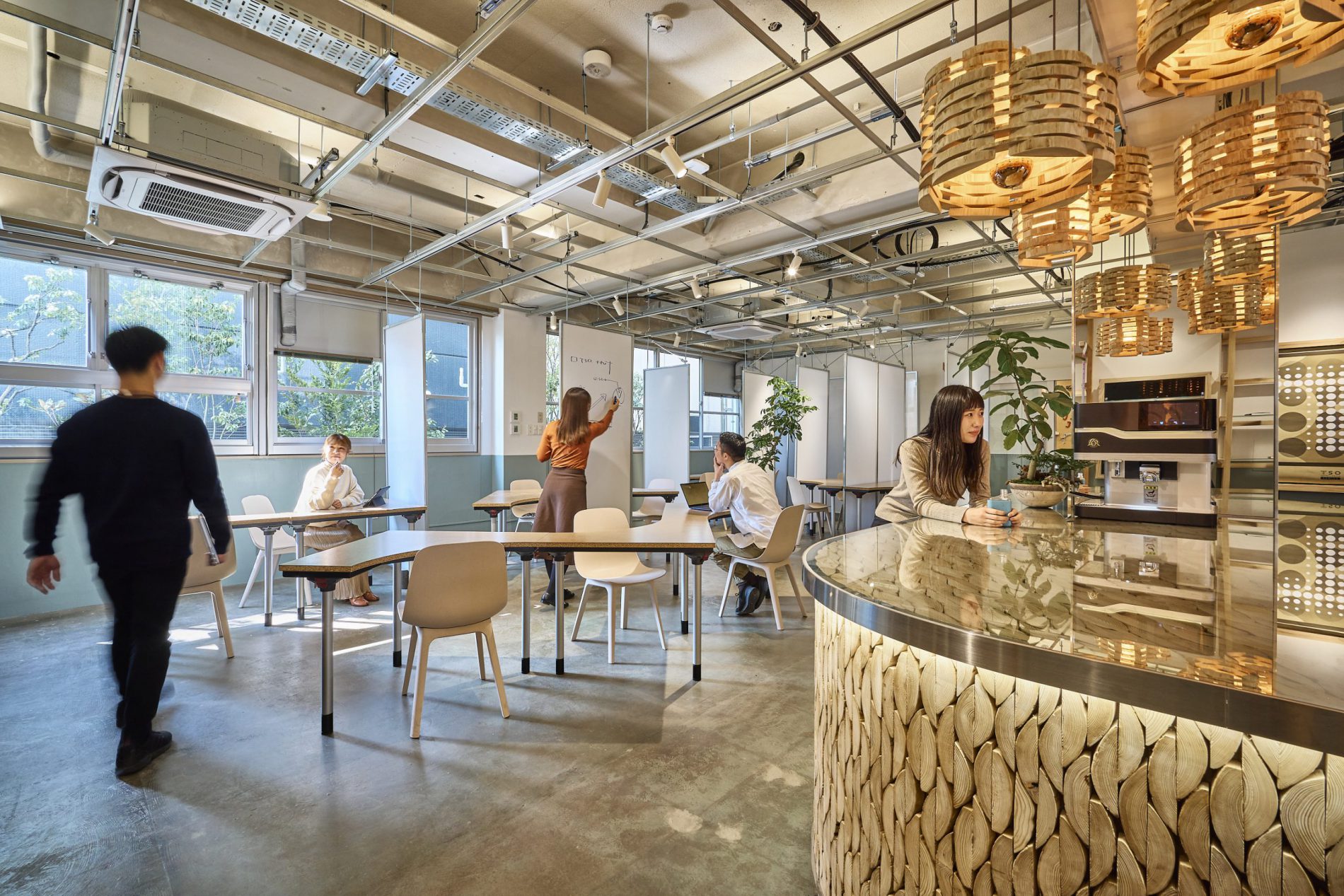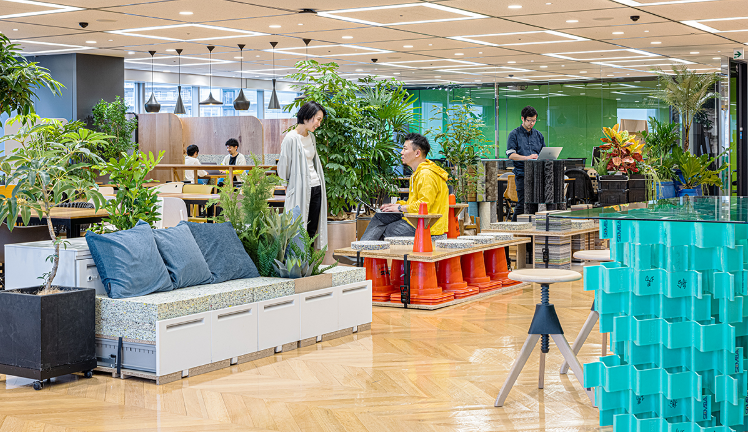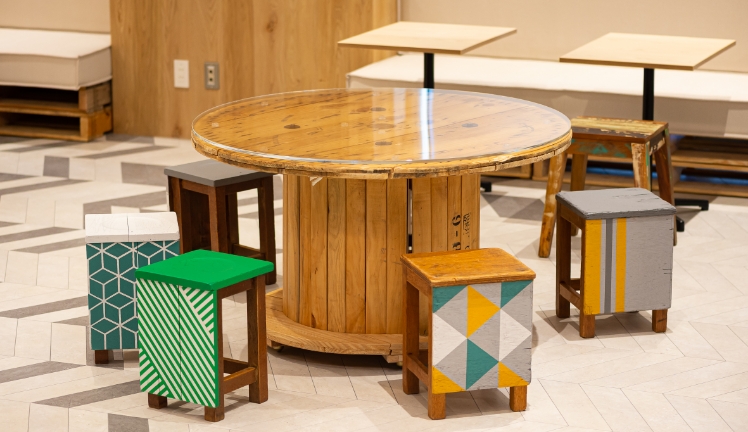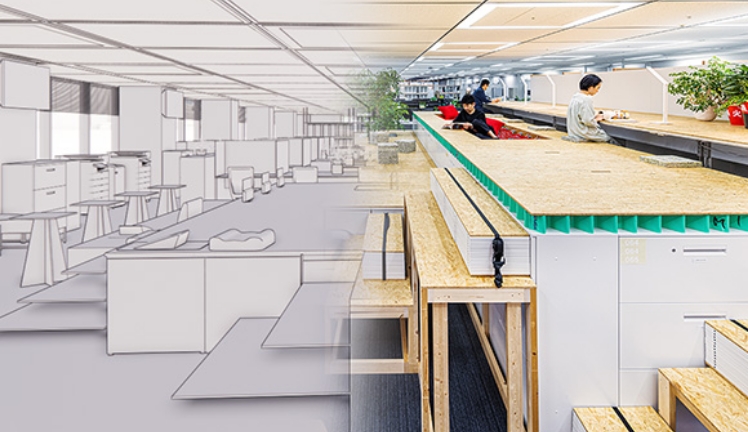Good Ethical Office Our Offices That Embody “Good Ethical Company”
In April 2021, we completely renovated our office into a “Good Ethical Office” that is friendly to the earth, people, and society. While introducing ABW (Activity Based Working), which allows employees to freely choose their working environment, we positioned our office as a hub office that serves as a “link and starting point” between people and people, people and organizations, organizations and society, and real and virtual worlds, and pursued new values.
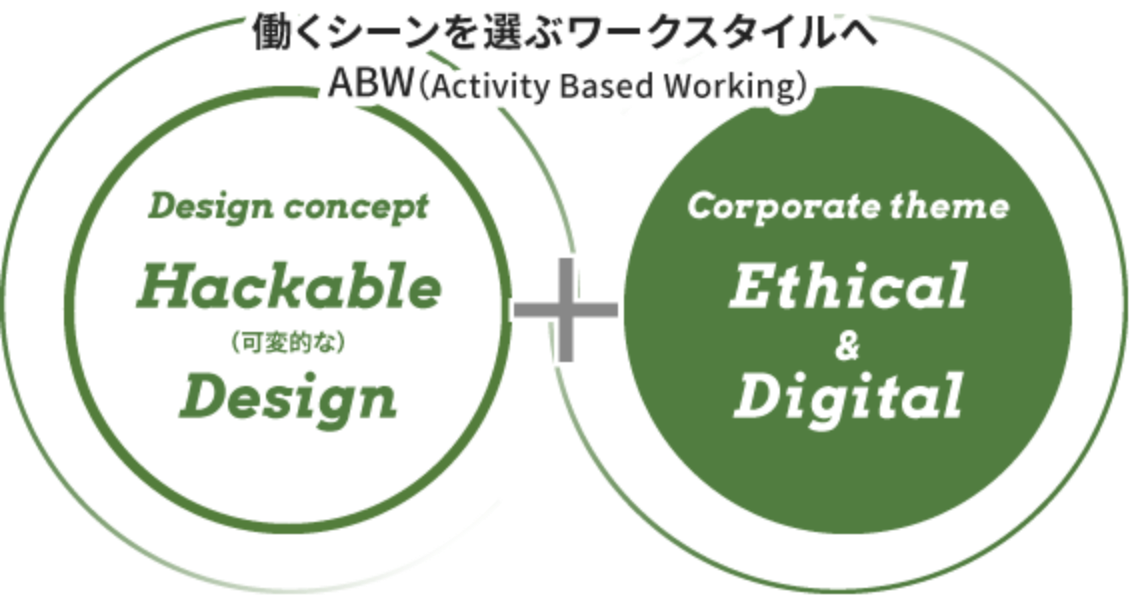
Based on the concept of “hackable design,” which can be created while experimenting with the ever-changing times, we implemented a resource-recycling renovation project in accordance with the Ethical Design philosophy we promote. We aimed to embody our vision of being a Good Ethical Company.
The project was executed by our group from planning to design and construction.

- Longlisted and Sustainable Space of the Year of KUKAN DESIGN AWARD 2021
- Shortlisted in the sustainable interior category of Dezeen Awards2022For more information
- Merit Awards of Design for Asia Awards 2022For more information
- Winner of ICONIC DESIGN AWARDS 2023For more information
- Bronze winning project of SKY DESIGN AWARDS 2023For more information
The new office of the head Movie
The new office of the Kansai Branch Movie
Completely Renovated into “Good Ethical Office That is Friendly to the Earth, People and Society”
SEMBA promotes Ethical Design which aims to co-create a better society throughout the entire supply chain, with “compassion” for people, the local society and natural environment. As a framework for the Ethical Design, we propose “Circular Renovation®,” which creates new value by recycling “resources to use” and “resources to dispose”. By providing total designs based on reuse and recycling, while utilizing our experience in handling from demolition to design and construction, we realize a circular spatial creating, considering the next renewal, as well as minimizing the amount of waste.
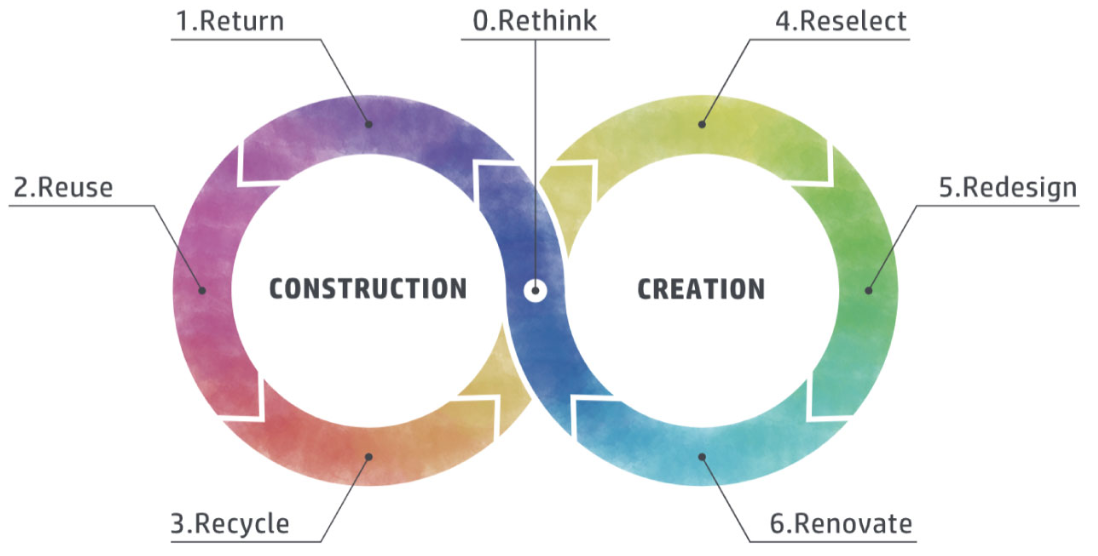
In the renewal project, we especially focused on a design based on “demolition”. We are committed to reuse and recycle resources, and for the renewal of the head office in 2021, we achieved a waste recycling rate of 99% and reuse 80% of existing furniture. We circulated the resources used in the space; we upcycled office furniture and fixtures that had been used before the renovation, used material samples, and waste materials from construction sites, into furniture and artworks, and also created space for refreshments and in-house events by stacking unneeded desks and wagons.
Designers of our company themselves constructed their office, so that we realized the designs that were based on demolition at the design stage. The project was not limited to “how much environmentally friendly materials we can use”. Each employee thought about “how to continue to use the space while changing its forms to meet our needs” from their own perspective, so that we realized the new space creation considering the future.
-
01Significance of promoting the Ethical Design
We have extended our consideration and compassion for “people”, that we have accumulated, to the local community and natural environment, and aims to create “friendly spaces” that realize all forms of coexistence between “people and people” and “society and the natural environment”. “Ethical Design” is one of these efforts, and it is an initiative with social significance that leads to solutions to the issues that society faces. In the era, where the innate value of not burdening the earth is emphasized, we make proposal that satisfy sustainability and design, based on ethical thinking. By renewing the office as a place that embodies our Ethical Design and communicates it internally and externally, we also aim to strengthen ties with companies that share the theme- and efforts we promote. We cannot solve social issues by a single company. We can only solve them by expanding a circle of efforts. We hope that many companies will make use of our technology and know-how that we have cultivated, and we will lead to create future-friendly spaces.
-
02Creating Spaces Based on the Concept of “Hackable Design”
In order to realize “Hackable Design,” we designed the office that allows workers a high degree of freedom in choosing their own working space and style. We broke away from the typical Japanese style; the homogeneous, parallel, fixed-seat configuration. It also supports a free-address system that allows employees to work at their preferred seat, and provides a variety of places for team meetings and concentrated solo work. In addition, to stimulate the sensitivity and imagination of employees engaged in spatial design, the workspace is studded with experimental elements that they can try and reshape. In an age when people can work from anywhere, we have created a new value for offices: the “hub office”.
The head office
Kansai office
-
03Upcycle Existing Fixture
We add new value to unneeded fixtures, such as desks and wagons. In contrast to the old method of throwing away items that are no longer needed and buying new ones, upcycling allows the resources used in a space to be circulated.
The head office /To embody ethical design, we utilized the fixtures in their original form to convey a strong message.
Kansai office /By upcycling scrap materials, we designed the office that gives new life to them while preserving their original appearance, and gives a sense of smiling warmth and diversity.
-
04“Link,” a Research Project Examining New Possibilities for Scrap Materials
In collaboration with we+ inc., a contemporary design studio, we conducted a research project to seek to create new value from discarded building materials. We found it strange that the life span of commercial spaces from construction to demolition and disposal is very short, and launched the project. We took apart the waste building materials generated during demolition, as well as sample building materials generated in large quantities during the planning and design stages, reconstructed them and produced original materials. By deconstructing and reconstructing building materials that have lost their original function, we aimed to bring out a different kind of appeal, and to continue to pass on the memories of the space and the atmosphere that the place used to have as new materials.
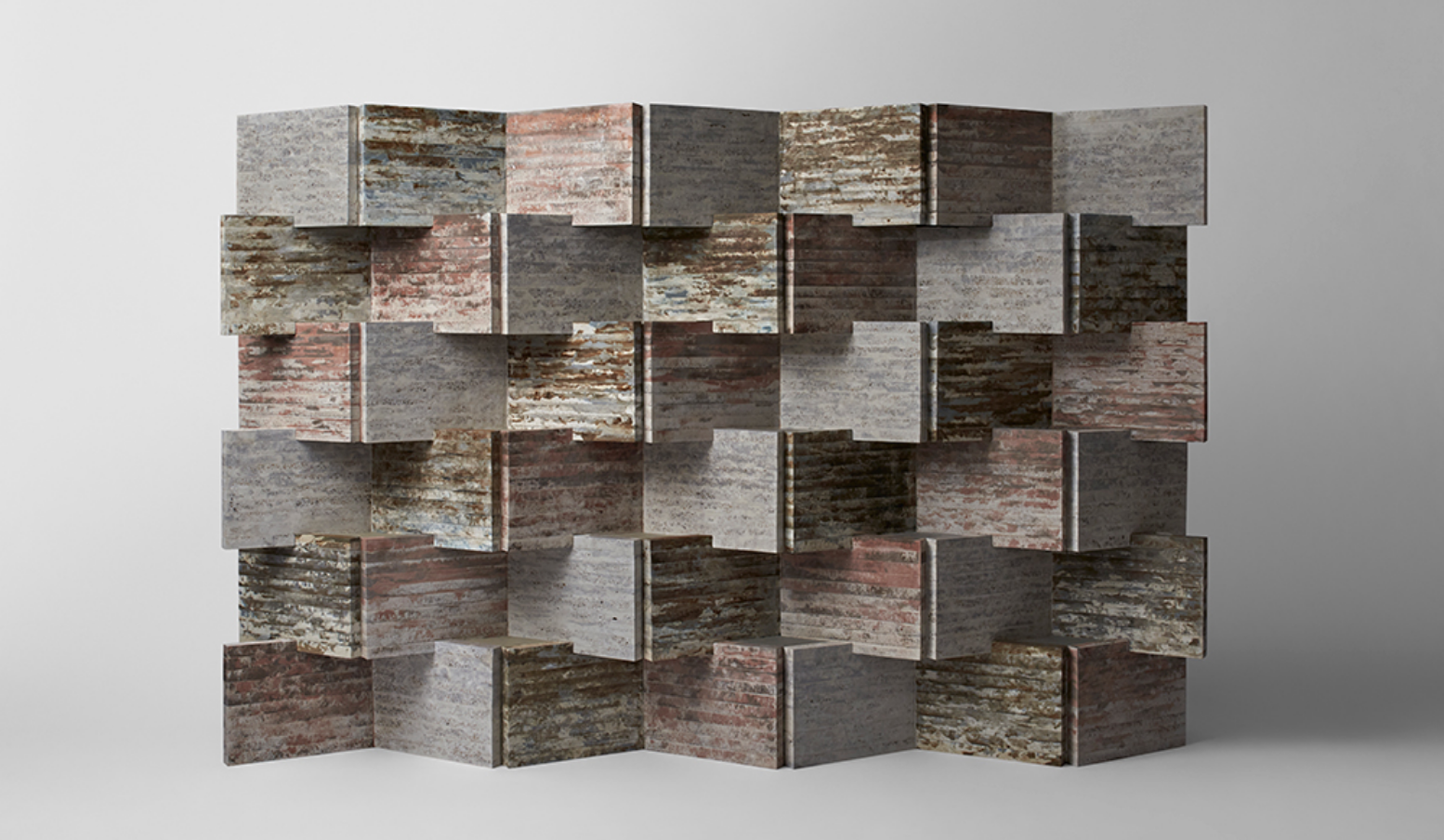
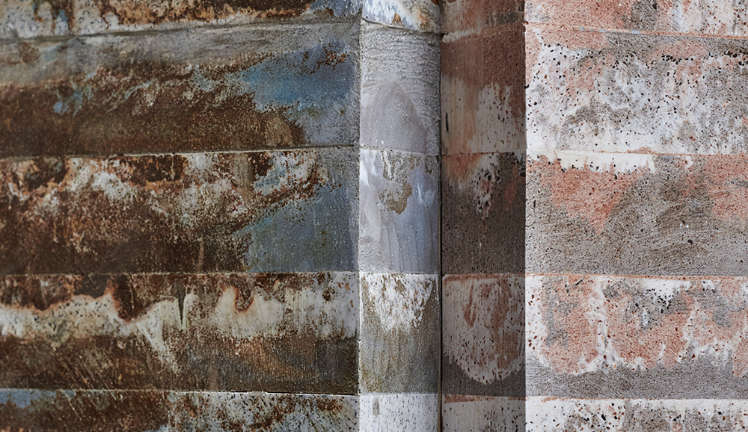
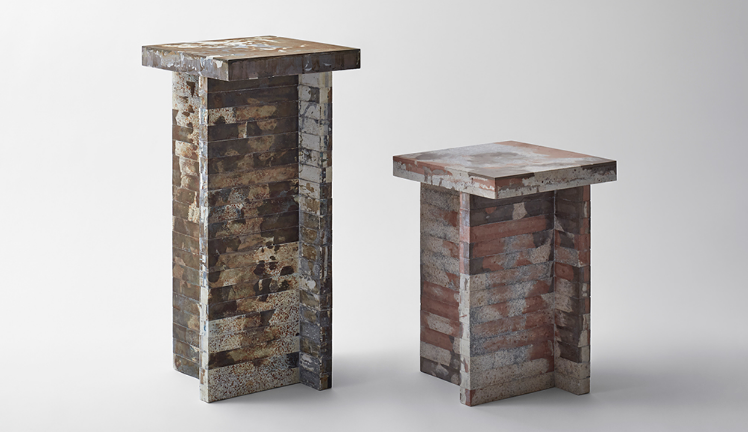
Photo: Masayuki Hayashi
Voice
/ Voice of the Person in Charge of the Renovation
Yosuke Honda, the head office
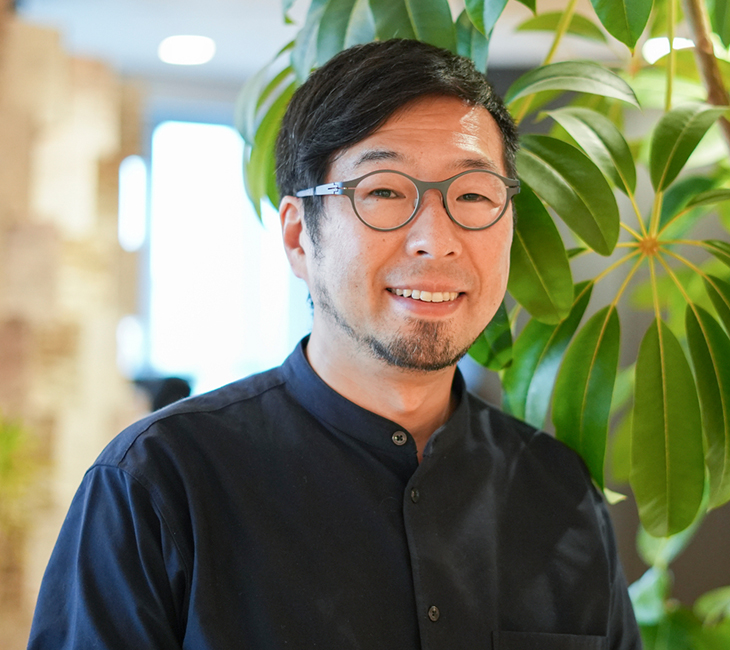
We started by giving shape to our Ethical Design initiatives in our own office, and through repeated trials, we have increased the number of projects that we are able to exhibit each year.
We have found that by giving shape to our efforts, we can generate empathy, which has led to a number of projects. More than 300 people joined the office tour at our event, “Ethical Design Week 2022”, and we were able to talk with many companies about the ethical initiatives. We were able to share our vision with employees, by embodying the Ethical Design in our own offices. We would like to continue to make our office grow as a good ethical office that generates empathy and co-creation, while brushing up and updating it through our own trials.
Yoko Munemoto, Kansai office
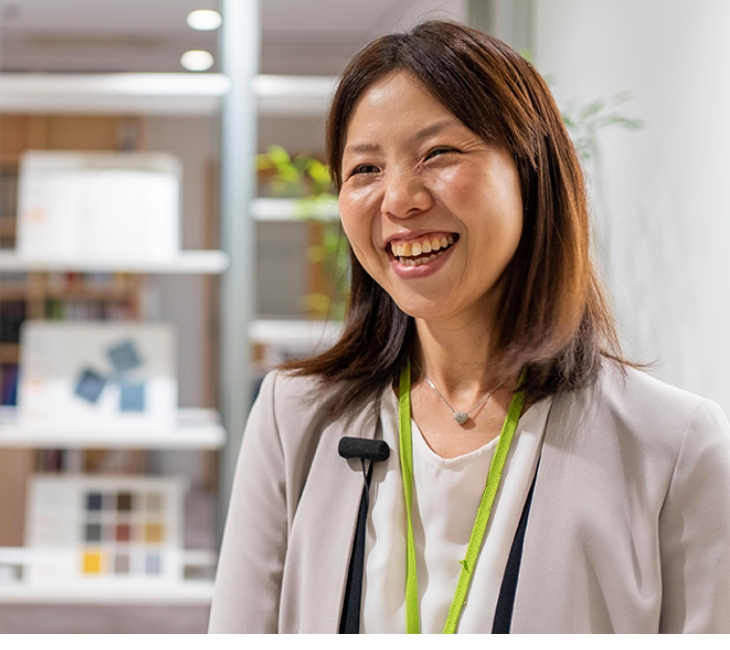
The office renewal was an opportunity to look at the diverse work styles of our employees. With so many different ways of working, it is difficult to meet all requests, but we felt that knowing and caring for each other is ” Ethical Design ” in the broadest sense.
By building a cooperative system with manufacturers and other companies and working on space creation with the same passion, we were able to complete an office that was appreciated by our clients and many others who visited our office. We would like to connect this experience and passion to our clients.

